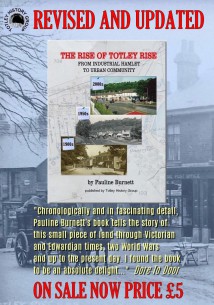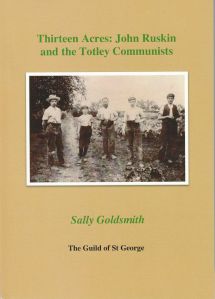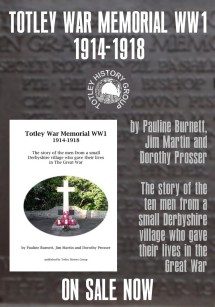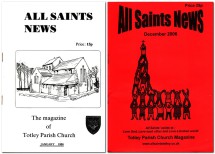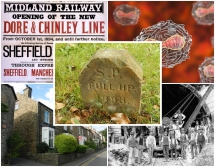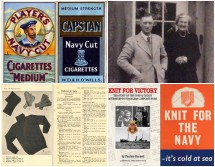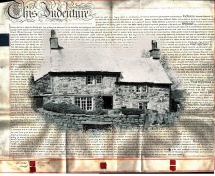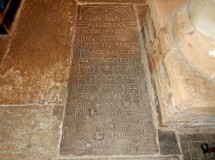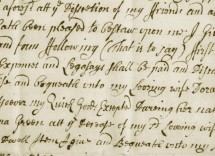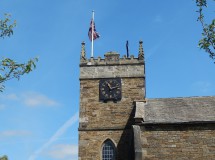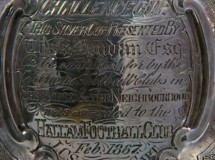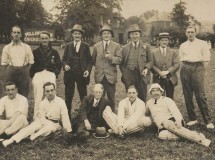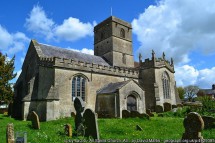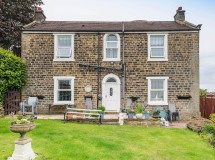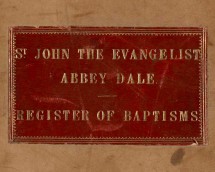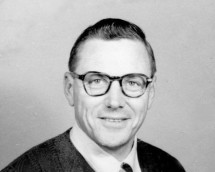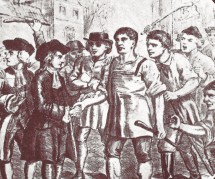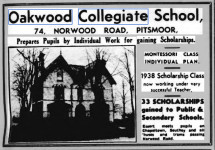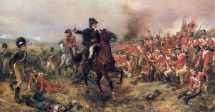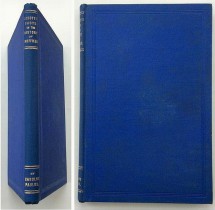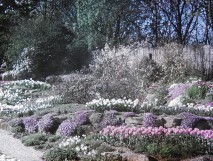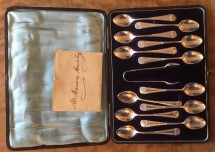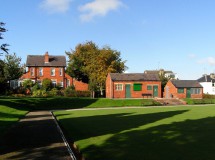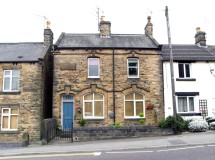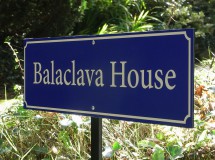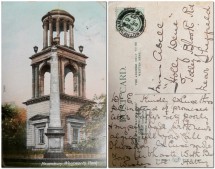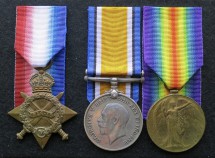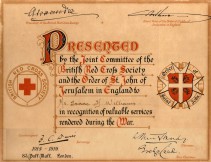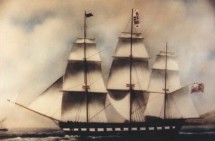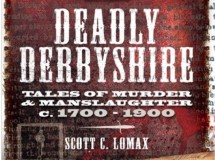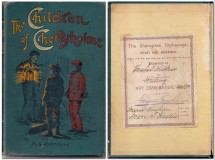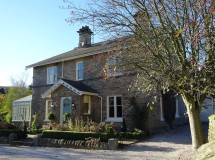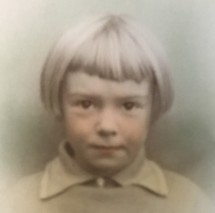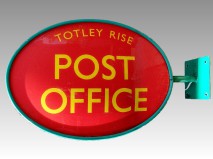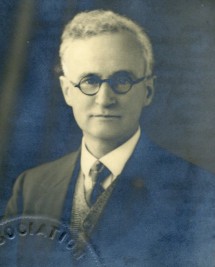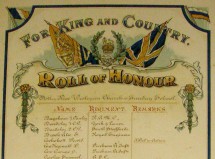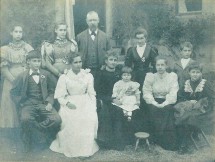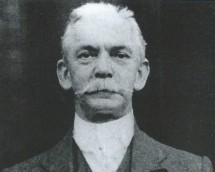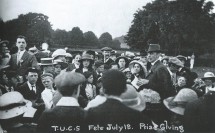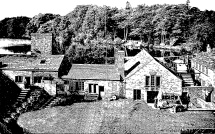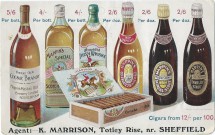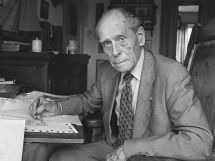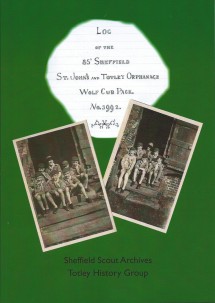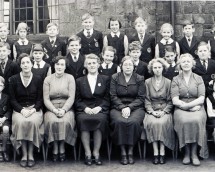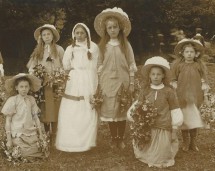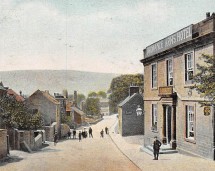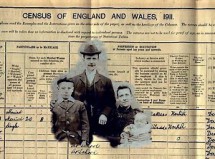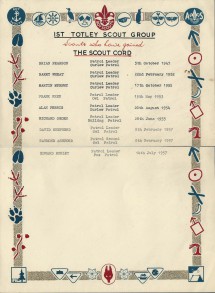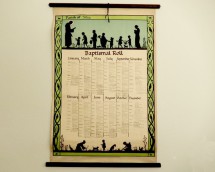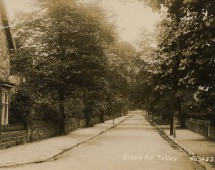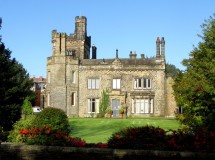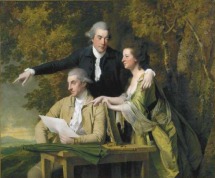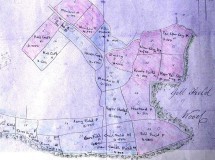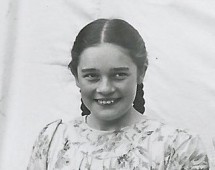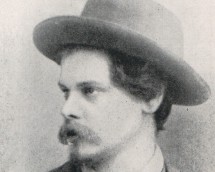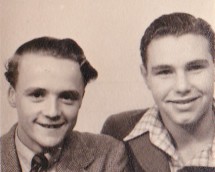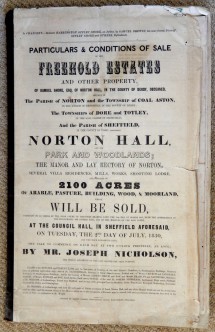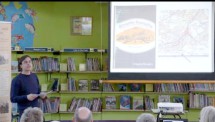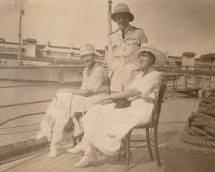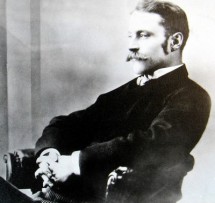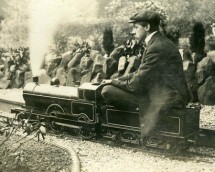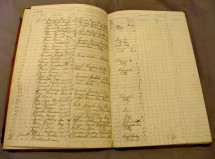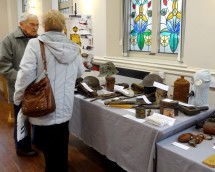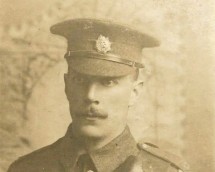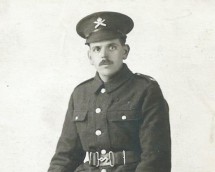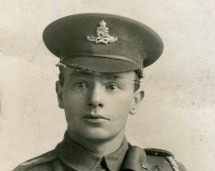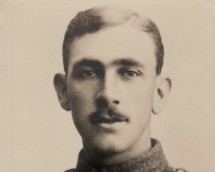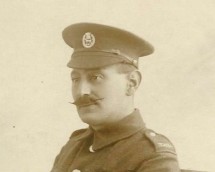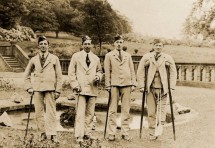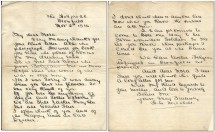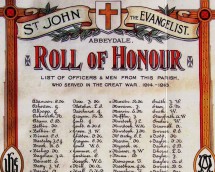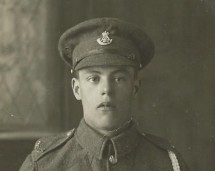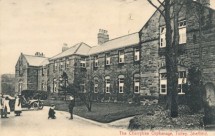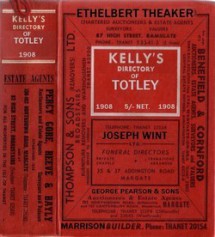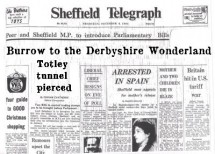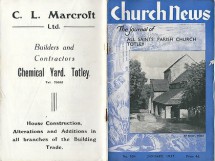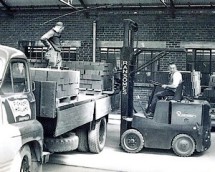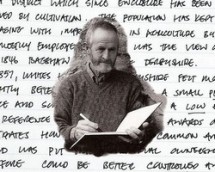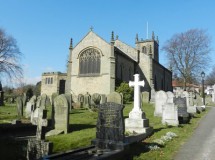Newspaper Archive: 1880-1886
Saturday 21st February 1880 Derbyshire Times (page 8)
A Waterloo veteran.
We are told there now resides at Totley Bents, a man named James Chichester Curtis who was born on H.M.S Chichester when that vessel was on a voyage to Jamaica in 1788
so that he is now 92yrs of age. As a soldier he served in the 1st Foot Guards, and at Waterloo and in Pennsylvania. He is now in good health and is residing at the Cricketers Inn Totley Bents where
he passes away his time by chatting with the company.
Wednesday 25th February 1880 Sheffield Daily Telegraph (page 1)
Mickley Farm at Totley.
Mr. Robert Lowe is instructed by Mr. Jos. Wood (who is quitting his farm) to sell by Auction on Monday 15th March 1880 the whole of his farming stock and
implements.
Saturday 10th April 1880 Sheffield Daily Telegraph (page 5)
Edgbaston House near Totley Station to be sold or let; this excellent suburban residance recently built regardless of cost by Mr. Frank Fenton for his own occupation. The pleasure grounds are nearly 2 acres in extent. Cards to view on application to Messrs Wing, Wing, Lilly & Co. Prideaux Chambers, Sheffield.
Friday 16th July 1880 York Herald (page 4)
Marriages
Porrett-Mountain. - On the 7th inst., at St John's church, Abbeydale, David Hunton Porrett, solicitor, Sheffield, son of Alderman George Porrett, J.P., Scarborough, to
Emily Jane, daughter of Alderman Joseph Mountain, Silverdale, Dore, near Sheffield.
Friday 3rd September 1880 Sheffield Independent (page 2)
Marriage
Mottershaw - Storm. At Ecclesall Church by the Reverend T. Rigby vicar of Holy Trinity assisted by the Reverend G. Sandford,
vicar of Ecclesall, Frank, second son of the late John Mottershaw, to Mary Elizabeth 3rd daughter of William Storm of Millhouses, Abbeydale.
Tuesday 28th September 1880 Sheffield Independent (page 5)
The Grove Totley.
To be let with immediate possession, the Capital Family Residence known as Totley Grove now in the occupation of Mrs. Waterfall, 6 miles from Sheffield on the Chatsworth
Road and 11/2 miles from Dore & Totley Station. The house contains Dinning Room, Drawing & Breakfast Rooms, 7 Bedrooms, Bath Room and Lavatory, 2
Large Kitchens, Pantries and Cellars. There is Stabling for 3 horses, Loose Box, Carriage House, Stable Room, Wash house, Cow House, Piggery and Cart Sheds. Man servant's House over stable and Saddle
room, Greenhouse Large Garden and well planted pleasure gardens. Also about 24 acres of good grass land which is nearly all in a ring fence surrounding the
house and is well supplied with water. The land will be let either with or separately from the house. The rent of the house is £100 and that of the land £50per annum. To an immediate tenant advantageous terms will be offered. For leave to view and other particulars apply to Addy Solicitors, George Street,
Sheffield.
Wednesday 13th October 1880 Sheffield Independent (page 3)
Marriage
Hill - Bown - October 6th at Dore Church, Derbyshire by the Rev. J. T. F. Aldred, Charles Henry only son of Rowland Hill, fruit merchant Sheffield, to Hannah Eliza, oldest daughter of Mr. Thos Bown, Cross Scythes Hotel Totley.
Thursday 4th November 1880 Derbyshire News (page 7)
Assaulting Female at Totley.
At Eckington Court House yesterday before J. F. Swallow Esq. William Hartley late of Green Oak House Totley a manufacturers clerk was brought upon a warrant charging him
with another man named William Fairclough, the prisoner's father's late Groom who is not as yet apprehended with assaulting Mrs. Harriet Shaw the wife of John Shaw of Grimesthorpe and Mrs. Ann
Bingham of the same place at Totley on the night of the 16th February last. The prisoner immediately after the occurrence absconded and was apprehended by Police Constable Topley at Norton Woodseats
on Tuesday night. Prisoner was remanded until Eckington Petty Sessions on Monday.
Saturday 26th February 1881 Sheffield Independent (page 1)
The Totley Terra Cotta & Fire Brick Co. Ltd. (Late Chadwick, Barker & Co.)
To be incorporated under Companies Act 1862 and 1867 where by the liability of members is limited to the amount of Shares taken by them.
Saturday 30th April 1881 Sheffield Daily Telegraph (page 4)
To Brewers Publicans and Others.
Valuable Freehold Public House and Property at Totley Derby to be sold by Auction by Mr. Geo Siddall at the Fleur de Lis Inn Totley on Thursday 26th May 1881 at 5 o
clock in the evening, precisely subject to the general conditions of the sale of the Sheffield District Incorporated Law Society, and to such special conditions as may be then and there
produced. All those 2 messuages or dwelling houses one of which is used as a public house and known as the Fleur de Lis with the file cutters shop stabling
and other buildings and erections and the yard belonging thereto situate at Totley in the County of Derby. The cottage adjoining the Public House is in the
occupation of Mr. Marsh and the entire property which is freehold contains an area of 1r 5p or thereabouts. The buildings are in a good state of repair, a
lucrative business has been carried out on at the Inn for many years past. For further particulars application made to the Auctioneer at his office in
Dronfield where a plan of the property may be seen. Messrs Nickolsons Saunders Nicholson & Reeder, Solicitors Wath on Dearn.
Tuesday 3rd May 1881 Sheffield Daily Telegraph (page 5)
Totley Brook Abbey dale - To be sold freehold stone built Villa (now occupied by Rev. Thos Spratt) three low rooms, pantry, four sleeping rooms, 1,210 yards land, ten
minutes of railway, early possession - E. Sanderson & Son, Estate Agents, Cambridge Street 2468
Thursday 21st May 1881 Sheffield Daily Telegraph (page 5)
Stack Fire Near Totley.
Last night Mr. Joseph Rollinson, farmer of Moneybrook Rise, beyond Totley, had a couple of stacks of last year's hay partially destroyed by fire. Three stacks were
standing together, and a few minutes past 6 o'clock two of them were observed to be on fire. A telephone message was despatched from Dore to Sheffield and an hour or so later Superintendent Pound and
the Fire Brigade were on the spot. Mr. Rollinson's farm is situated near to the scene of the tunnelling operations that are being carried on in connection with the new line from Dore to Chinley. The
close proximity of the burning stacks to the boring shaft proved a fortunate matter for their owner, as a better supply of water was obtained from the works than could evidently have been got from
any other source. As the result of cutting away the outsides of both ricks, and pouring plenty on the burning portions, the third stack was saved, although the other two were almost completely
destroyed. The damage will be considerable although it is understood Mr. Rollinson has his produce insured. It is believed that the stacks were ignited
either by children, without malice or an incendiary.
Tuesday 28th June, 1881 Sheffield Daily Telegraph (page 5)
Wanted
Wanted an agent on Commission to exhibit and get orders for lst class Terra Cotta goods also chimney tops, sanitary glazed pipes etc.
Apply personally or by letter to T. Beech Totley Fire Brick & Terra Cotta Works, Totley Moor.
Tuesday 5th July 1881, Sheffield Daily Telegraph (page 4)
This Day. Valuable Freehold and Leasehold Dwelling Houses, on the Mount Ville Estate
Totley Rise, Totley.
To be Sold by Auction, Mr. Nicholson, at his Mart in High street, Sheffield, On Tuesday, the 5th day of July, 1881 at Four o'Clock in the Afternoon, subject to the
General Conditions of Sale of the Sheffield District Incorporated Law Society.
LOT 1.
All those three newly-erected Freehold Dwelling-houses, with the Stable, Gardens and Appurtenances thereto belonging, situate near Mickley lane, at Totley Rise, and
adjoining the lane on the bank of Messrs. Tyzack's Mill Dam. One of the houses is in the occupation of Mr. Thomas Wint, and the other two are at present unoccupied. This lot contains 2,246 square
yards.
LOT 2.
All those four newly-erected Leasehold Dwelling-houses, the site whereof adjoins Lot 1, two of which are now in the respective occupations of William Alderson and W.
Shepherd, and two are at present unoccupied. This lot contains 1,550 square yards, and is held under a Lease for 799 years from 25th March 1879, at the annual Ground Rent of £12 18s. 4d. The Minerals
are reserved.
LOT 3.
All these two Leasehold Dwelling-houses, with the Yard, Gardens and Outbuildings thereto belonging, fronting to the Turnpike road at Totley Rise aforesaid, one of which
is now used as a Working Men's Reading Room and Club, and the other as a Greengrocer's Shop. This Lot contains 566 square yards, and is held under Lease for 800 years from the 25th day of March,
1878, at the annual Ground Rent of £5 17s. 11d.
All the above properties are exceedingly well and substantially built, are situated in a beautiful and increasing neighbourhood, and must form a very eligible
investment.
For further particulars apply to Mr. W. Alderson, Totley Rise; the Auctioneers; or to us, at our Offices, where Plans may be seen.
Messrs. Wightman and Nicholson, Solicitors, 25 Change alley, Sheffield.
Monday 4th July 1881 Sheffield Daily Telegraph (page 4)
Horse Stealing at Dore.
A young man named Wood who resides at Totley was on Saturday morning apprehended by Police Constable Henry Topley on a charge of stealing a horse belonging to Mr. W. H.
Haigh of Sheffield. It appears that the horse in question has been turned out in a field at Dore by its owner and about three months ago it was stolen there from during the night time and afterwards
sold by two men. The prisoner it is alleged is one of them and today he will be brought before the Petty Sessional Court at Eckington.
Monday 18th July 1881 Sheffield and Rotherham Independent (page 2)
Brinkburn Grange, Abbeydale, five minutes' walk from Dore and Totley Station. - This charming Residence, now and for the past seven years in the
occupation of J. Unwin Wing, Esq., to be Let, with possession, on 29th September next. The house, which has south aspect, contains excellent Dining, Drawing and Breakfast Rooms, two good Kitchens,
Housemaid's Room, Larder, Cellar, and Wine Cellar; seven bedrooms, Bath Room, W.C., Store Room, separate Staircase for Servants; in yard is Stabling, large Carriage House, warmed by hot water pipes;
Washhouse, and all necessary other Outbuildings. Lodges at entrance gates. The Grounds about 1 1/2 acres, are most beuatifully laid out, and additional land, to the extent of about three acres, is
let with the house. - further particulars and card to view may be obtained from Mr. A. Dearman, Alliance Chambers, George street. [6284]
Tuesday 19th July 1881 Sheffield Daily Telegraph (page 7)
Damages for Neglect of Work.
A labourer named Anthony Eaton of Totley was summoned by Mr. Thomas Kilner the proprietor of the Chemical Works at Totley under the Employers and Workmen Act 1875 for
the recovery of £1 for damages sustained by the master in the defendant absenting himself from his employer's service from the 4th to the 12th inst. without notice. The justices granted judgement for
the amount claimed and costs 12s.
Tuesday 27th September 1881 Sheffield Daily Telegraph
Cruelty to a Horse at Totley.
Thomas Beech the manager of the Totley Brickyard and John Wilson also of Totley described as a carter was summoned for causing a horse to be cruelly tortured. The Justices fined the defendants Beech
the sum of 10s and the costs 10s 6d and the other defendant 6s and costs 10s 6d.
Friday 16th October 1881 Sheffield Daily Telegraph (page 7)
Trap Accident at Totley
A horse attached to a dog cart while left for a few minutes outside the Owler Bar on Wednesday evening started off at a hard gallop towards Totley and when near Town Head ran through a flock of sheep
belonging to Mr. Furniss of Eyam injuring 4 of them. It continued its course until the Queen Club was reached when it collided with a large brick and stone pier which threw it down smashing the trap
and cut the horses leg and body seriously.
Tuesday 29th November 1881 Sheffield Daily Telegraph (page 4) Extract
This Day, Works, Dwelling Houses, and Beerhouse, in Rockingham street and Trafalgar street, Sheffield, and Rolling Mill, Grinding Wheel, Buildings, and Land, at Totley,
near Sheffield.
To be Sold by Auction, by Mr. Nicholson, at his Mart, in High street, Sheffield, on Tuesday, the 29th of November, 1881, at Four o'Clock p.m., subject to conditions, the
following Valuable Freehold and Leasehold Properties:-
....
LOT 5.- Freehold Land situate at Totley in the Township o Dore, in the County of Derby (about five miles from Sheffield), containing about 8A. 2R. 6P., and fronting to
both sides of the Highway from Sheffield to Baslow, together with the Grinding Wheel, containing five Heavy Troughs, Smiths' Shops, Warehouse, Lead Smelting Furnace, and Stable, and constituting the
Works called Totley Rolling Mill; and also six Cottages erected on other part of the said Land, and other parts of which said Land are covered with Water called Great Dam and Little Dam, and also the
Head and Fall of Water belonging thereto. The Cottages are occupied by G. Reaney, T. Bishop, and others, and the remainder of this Lot is in the occupation of Messrs. Tyzack, Sons, and
Turner.
This Lot admits of great extensions of the Works, having abundant supply of Water Power, without the annoyance of being in backwater during floods. There is also a
quantity of Land well adapted for the creation of Workmen's Houses, which would only be about half a mile from Dore Station, and should the Midland Railway Company make their once projected line to
Hassop, it would go through or near the property.
Printed particulars and plans and further information may be obtained from Messrs. Fowler and Son, Surveyors, St. James' street, Sheffield; the Auctioneer; Messrs. B. wake & Co., or Mr. Percy Sorby, Solicitors, Sheffield.
Saturday 3 December 1881 Sheffield Daily Telegraph (page 10) (extract only)
Important Property Sales.
Mr Nicholson sold by auction on Tuesday at his mart, High street,... A third lot comprised about 8 acres, 2 roods, 5 poles of freehold land at Totley, about five miles
from Sheffield, fronting to both sides of the highway from Sheffield to Baslow, together with the grinding wheel, containing five heavy troughs, smith's shops, lead smelting furnace, and stable,
which constitute the works called Totley Rolling Mill, together with the six cottages on the land, and the two dams of water which supply the machine power. The bidding, which commenced at £1,000, by
steady increasements reached £1,600, when the sale was declared an open one, and after a brisk competition, the lot was knocked down to Mr. Ebenezer Hall, at £2,460....
Monday 15 May 1882 The Sheffield Daily Telegraph (page 2)
The Arrest of Mr. J. Unwin Wing
The proceedings taken against Mr. J. Unwin Wing, chartered accountant, of Change alley, Sheffield, have caused much talk in the town and district, Mr. Wing being exceedingly well known in all
circles. It was supposed that on Saturday an application would be made for bail; but nothing whatever was done in that direction - the case, indeed, not being before the Court at all. We are informed
that the Sheffield Waggon Company, Limited, of which Mr. Wing was secretary, was altogether apart from the general accountancy and audit business of Messrs. Wing, Wing,
Lilly, and Co., and that the company hired at room at Prideaux Chambers, for which they paid the firm a rent. Mr. Wing, it seems, received a commission from the company on all waggons he
leased to clients. Of course a large sum like £8,000 could not have been obtained as commission on 160 waggons. The supposition is that the money was obtained ostensibly for the purpose of building
waggons to enable the company to carry out the alleged agreement with the Ebbw Vale Company. On Saturday, Mr. Wing had an interview with his solicitor, as well as with several members of his family.
The partnership in the firm of which he was the head was dissolved on Saturday by mutual consent, and notice to that effect has been officially announced. Mr. Wing, it may be mentioned, recently
removed from Brinkburn Grange, Abbeydale, to the fine old residence of Totley Hall. Being a leading resident of that district, and one of the churchwardens at Dore,
his arrest naturally caused quite as much interest in that locality as in Sheffield. In the present stage of the case it would be unfair to enter into the details of the charges made against Mr.
Wing; but there can be no harm in stating what these really are, as set forth in the warrants under which he was arrested. There are two informations, both laid by William Joseph
Thompson, of Clarkhouse road, contractor, who is also the chairman of the Sheffield Waggon Company. Mr. Thompson, in the first information, alleges that "John Unwin Wing, of Change alley,
accountant, on the 12th day of April, 1882, at the parish of Sheffield, did unlawfully, knowingly, and designedly, falsely pretend to John Marples and James Allen, two of the directors of the
Sheffield Waggon Company, Limited, that the Ebbw Vale Steel, Iron and Coal Company, Limited, have agreed to take on a lease from the said Sheffield Waggon Company, Limited, one
hundred and sixty railway waggons, and that the secretary of the said Ebbw Vale Steel, Iron and Coal Company, Limited, had signed an agreement in writing on behalf of the said Ebbw Vale Steel, Iron
and Coal Company. Limited, for the hire of the said railway waggons, by means of which said false pretences he, the said John Unwin Wing, did unlawfully obtain from the said John
Marples and James Allan a certain valuable security, to wit, a banker's cheque for eight thousand pounds sterling and with intent thereby then to defraud against the form of
the statute in such cases made and provided." The other information is also laid by Mr. Thompson, who alleges that "John Unwin Wing, of Change alley, accountant", on 14th April, 1882, "unlawfully,
knowingly, and falsely did forge and counterfeit, and also did alter and put off, a certain writing purporting to be an agreement for the letting and hire of one hundred and sixty railway waggons
with intent thereby then to defraud, against the peace of our Lady the Queen." The case will be heard on Thursday.
Thursday 18th May 1882, Sheffield Daily Telegraph (page 5)
Round The Town. (By Rambler)
"An old baronial hall" in Derbyshire is not the costly luxury generally imagined, if you are only content with the baronial hall and its fixings. Mr. J. Unwin
Wing, when he moved from Brinkburn Grange to Totley Hall, was by no means going beyond his tether in the moving thereto. He had Totley Hall, I am told, on a
sixteen years' lease for £150 a year. The rent included not only the Hall, but 150 acres of land. He let 143 acres for £140, and thus had the Hall and 10 acres left for £10 a year. Only he found the
hall as the Yankee found Pompeii, sadly out of repair, and began to alter and build. A big billiard-room was followed by balconies all round the house, with access from the bedrooms. These and other
additions made up a tidy little bill; but even the interest on the amount expended would not have totted up to a large rent for such a residence. There are other old halls in the county, I hear,
which can be had on almost, if not equally, favourable terms.
23 May 1882 Berwickshire New (page 4)
Extensive Foregeries at Sheffield
At Sheffield Police Court on Thursday, before the Stipendary Magistrate, Mr John Unwin Wing, accountant, Totley Hall, North Derbyshire, practising in Sheffield, was charged on several warrants with
obtaining money under false pretences by means of forged documents. One charge was for obtaining £8000 by means of a forged agreement from the Sheffield Waggon Co., of which he was Secretary. Other
charges have been preferred, and evidence is now being taken in suppoort of the charges.
Wednesday 21st June 1882 Derby Mercury (page 5)
Proposed Derbyshire Zoological Garden.
A company has been founded with a capital of £20,000 to establish zoological and pleasure garden at Totley in Derbyshire. The company has aquirted 11 acres of ground. The promoters state that the
Midland Company contemplate construction at an early date, a line of railway from Sheffield to Hassop and they believe a railway station on the new line will be erected opposite the
ground.
Saturday 22nd July 1882 Sheffield Independent (page 5)
Cherrytree Orphanage, Totley, near Sheffield. Certificated Mistress Wanted on July 31st. No. of children 50 - 7 of whom are
Boys; must be able to Play the Harmonium and Teach Singing. The school is under Government Inspection, very healthy neighbourhood - Salary £30 per annum with
Board and Apartments. Address with References and visit to Mr. W. K. Marples, The Grove, Totley, Sheffield.
Thursday 27th July 1882, Sheffield Independent (page 5)
Of Men and Things [By Le Flaneur.]
Mr John Unwin Wing presented a pitiable appearance in the dock at the Leeds Assizes yesterday. During a somewhat long experience of courts of justice, I have seen many a
sad and sorrowful spectacle; but I cannot remember one more sad than this. As he entered the dock and stood with downcast eyes and quivering lips, his appearance was so greatly changed that he was no
longer the Mr. Unwin Wing of former times, but a man upon whom years had come "with leaps and bounds," and who was literally bowed beneath a crushing weight of sorrow. Sorrow, of course, of his own
creation; but I suppose it is none the less keenly felt on that account; indeed, I am not sure that its poignancy is not all the greater. It is not my wish to draw a moral; but it seemed to me and to
many others in the court, that during the few minutes which Mr. Wing spent in the dock, he preached an uncommonly powerful sermon from a familiar text, though the words are not to be found in the
Bible.
Friday 28 July 1882 Sheffield Daily Telegraph (page 2)
The charges against Mr. John Unwin Wing
Sentence of Penal Servitude
At the Leeds Assizes yesterday, sentence was passed upon John Unwin Wing, accountant, Sheffield, who pleaded guilty on Wednesday to four indictments charging him with forgery and with uttering
certain documents by which he obtained sums of £8,000 and £7,500 from the Sheffield Wagon Company.
The case came before Mr. Justice Cave, sitting in the Crown Court. The prisoner was placed in the dock at the opening of the Court at ten o'clock. He maintained greater outward composure than on Wednesday when his plea was taken, but was evidently suffering acutely from mental agony. Mr Barker (instructed by Messrs. Binney, Sons and Wilson) appeared for the prosecution; and Mr. Forbes Q.C. and Mr. Harold Thomas (instructed by Messrs. Rodgers, Thomas, Swift and Ashington) for the prisoner.
Mr. Barker addressing his Lordship said: The prisoner, John Unwin Wing, pleased guilty yesterday to four indictments, in two of which he is charged with forgery under the statute - in one case with forging a receipt for a large sum of money, £7,500, and in another indictment he is charged with having forged and altered a cheque for £8,000. The charges in the other indictment are for the common law misdemeanour of forging an agreement for the lease of 150 railway waggons in one case, and 160 railway waggons in another case; and also for forging certain documents connected with these leases. The facts of the case, my Lord, are these. The Sheffield Wagon Company, Limited, is what is known as a financing company, that is, they don't build waggons, but they find the money to pay for waggons which are built by a company who are manufacturers of waggons. A company that wishes to hire any waggons borrows the money from the financing company. The latter then becomes the real owner of the waggons, and grants a lease to the company wishing to hire upon such terms of repayment as, in course of time, if spread over a certain number of months or years, results in the waggons ultimately becoming the property of the hiring company. In fact the financing company are simply capitalists. The defendant Wing was the promoter of the Sheffield Wagon Company, which came into existence some 13 years ago, and he has acted as secretary of the company from that time. The company has been a successful one. It has paid good dividends, and even now in the depressed state of trade still pays a considerable dividend. The prisoner, my Lord, made use of his position to commit these frauds. He represented to the directors of the Wagon Company that certain manufacturing companies were in want of railway waggons. After several meetings he produced to the board of directors contracts for taking leases of waggons by these manufacturing companies. These contracts purported to be signed by the secretaries or the managers of the manufacturing companies. They were, however, entirely fictitious. There had been no communications whatever between the the prisoner and (t)he manufacturing companies. Upon the faith of these representations the directors, believing that the manufacturing companies had entered into binding contracts with them, gave to the prisoner money to purchase waggons from the manufacturing companies. On one occasion the prisoner got a sum of £7,500 to be paid to the Sheepbridge Coal and Iron Company.. The cheque was made out payable to the Sheepbridge Iron Company, or order, but after the cheque was received by the prisoner it was altered by him, and made payable to the Sheepbridge Company, or bearer. The alteration was initialed by the prisoner as secretary, and purported to be initialed by two of the directors. These initials were forgeries. Upon the strength of this the prisoner presented the cheque at the bank, and received from the bank the sum of £7,500. In another case a similar fraud was committed with respect to the Ebbw Vale Steel, Iron, and Coal Company; and in that case a sum of £8,000 was received. The cheque in this instance was not altered. There was some representation made about the cheque being asked for and made payable to bearer, instead of order. In these ways the prisoner received the two sums of £7,500 and £8,000. Well, my Lord, he has at times, I believe, made certain payments back in the shape of rents. Imaginary rents have been paid by these companies through him, but in the ... of the companies. Of course that might be from an honest intention to pay back hereafter, in the shape of rent, the whole money which he had borrowed, supposing the frauds were not discovered. It is also open to this observation, that unless he had made these payments the frauds would have immediately been detected. On behalf of the prosecution I do not wish to say anything beyond what I have told your Lordship, and what appears upon the depositions; but I think it is right to inform your Lordship that between the period June, 1880, and April, 1882, the prisoner obtained by these very frauds upon which he is indicted today, and also by similar frauds, a sum of £50,500.
Mr. Forbes, Q.C.: My Lord, I appear in this case on behalf of the prisoner, and it is one of the most painful duties I have ever had to undertake in the course of my professional experience. The prisoner, my Lord, has pleaded guilty to these charges. He could not do otherwise, the facts are conclusive against him; and I appear before your Lordship merely to represent some matters which seem to me ought to be submitted to your Lordship, which may tend to mitigate the character of the offence, and induce upon your Lordship to pass a milder punishment that in the interests of justice you might otherwise be disposed to pass. I cannot dispute in any way the facts brought forward, and so fairly stated by my friend. Mr. Barker, but there are certain other facts which I should like to bring before your Lordship's attention. I believe the facts which I am going to state will not be disputed by my friend, to whom I have communicated their substance.They do not appear on the dispositions, but if the directors of the Wagon Company were themselves in the witness-box I think they would not be disputed.. The prisoner, Mr. Unwin Wing, has been an accountant in Sheffield for 21 years. He was well known not merely as an accountant in Sheffield, but in the surrounding district far and wide, and also well known in London, known as a man doing a large business, a man with the reputation - a deserved reputation - of being an honest, intelligent, clever man in his business. My Lord, for many years - down in fact to the time of being charged with the offences for which he is now before you - the prisoner had been in the enjoyment of a large income from his business. For many years he made £1,00 to £5,000, and even during the last seven years, in a period of very great depression, he had made no less than £3,500 per Annam. Your Lordship will see presently why I call your attention to these matters. It was part of the prisoner's business to assist in the floating and financing of companies. and he had many friends who were connected with him in that way. I believe that in 1875 he was a shareholder of no less than thirty-three different companies, in which he had paid-up capital to the amount of £16,000. He was also the owner on his own account of other property of considerable value, of which he is still the owner. As your Lordship knows, about that time an unfortunate depression of trade set in. The result was that the accommodation which the prisoner had got from the banks, and particularly from one bank in Sheffield, amounting altogether to about £50,000, was suddenly called in. The income which he had from shares came to an end, and he had to make payments in respect of calls and the want of accommodation. If he had been obliged at that time to make the payments the shares would have been forced into the market, and not only himself ruined, but his creditors would have been great sufferers, and personal friends who had joined with him in various liabilities would probably have been ruined also. Under these circumstances Mr. Unwin Wing did a thing which he certainly ought not to have done. He admits now his criminality and deeply regrets that he took advantage of his position as the secretary of this company. He was, I may say, a man of great importance in this company. He had been the promoter of it; he was secretary of it from the beginning; and he had the most active share, I think, in its management. In fact the great success Mr. Barker speaks of was mainly owing to Mr. Wing. The company, through his management paid until the last four years a dividend of no less than 8 per cent, and it has never paid, even in these depressed times, less than 4 per cent. However. Mr. Wing took advantage of his position, thinking to tide over the commercial .... by making these representations to the company, and thereby obtaining the money. The money he obtained he need not for the purpose of riotous living or for the purpose of squandering, but for the purpose of paying the calls on the shares to which I have called your Lordship's attention. Between 1875 and the present time Mr. Wing has paid liabilities in respect of his shares to the amount of £19,817. The moneys which he obtained in the way Mr. Barker has described he applied for that purpose, and he .. applied it with the intention that his shares might not be forfeited, that his creditors might have the benefit of these shares should he unfortunately come to grief hereafter,a nd that his friends who had become personally liable, might not be called upon to pay what he ought to have paid, and thereby have been ruined. I am instructed that when Mr. Wing committed the facts for which he is now called to account he .... and had some reason to hope, that the crisis would pass by, that his shares would regain their former value, his dividends again be paid, and that the shares would ... marketable, .. h would be able to pay this money to the Wagon Company. My Lord, in proof of this, Mr. Barker has said, and truly said, that although the prisoner began to commit the first offence some years ago he regularly made payments to the Wagon Company as they became due, exactly as if the transactions had been real. As you know the hiring and purchasing of waggons is for terms terms of five to seven years and I think I am right in saying that for a period of nearly four years Mr. Wing went on regularly paying to the Wagon Company the annual payments as they became due. These payments would be a ... to the company of about seven per cent. I don't attempt to take away the criminality, but what was in the prison's view was this. "If I can tide over this ... I shall not do any harm to the Wagon Company; I shall save my friends, and keep for the benefit of my creditors property which if now forced into the market will be lost." And under these circumstances he committed the offence with which he is charged. Now, my Lord, the result to Mr. Wing is absolute ruin. His large business, whatever punishment you may inflict, is gone. His character is gone. Mr. Wing is a man with a wide and five children, the youngest only five years old. The punishment to him, whatever your Lordships may indict, must be the most serious that can be conceived. When he comes out of prison he stands alone in the world - his business gone, his connection gone, his friends gone, his money gone. Under these circumstances I ask your Lordship to take a merciful view of the case, and to take therefore, at all events, some extenuating circumstances - some reason to think that at the time this was done Mr. Wing hoped he would be able to repay the money obtained in the manner that has been described. The probability is if the depression in trade had not lasted so long no loss would have been sustained by anybody. Mr. Wing is the owner of considerable property that will still be available for restitution. he is the owner of £7.000 or £8,000 of property in b.... and land that would be available for his creditors, and, in addition, he is the owner of a large quantity of ...., upon which since 1875, he has paid £10,000 odd by means of the money he obtained from the Wagon Company. Considering the use to which he put this money, that he must have known that his creditors, if it ever came to that, would get the money; considering also that, barring these transactions, he has been a faithful servant of the Wagon Company, which he has managed so successfully, and which is still in a most flourishing condition. I hope and trust your Lordship will take a ... view of the case.
The prisoner was then asked in the customary way if he had anything to say why sentence should not be passed upon him. He feebly shook his head, as attempting to speak.
His Lordship, in passing sentence, said : John Unwin Wing, I have listened to the observations which have been so ably made by the learned counsel in mitigation of the offence which you have committed. Taking into consideration everything that is urged I still feel I must pass upon you a severe sentence. The offence to which you have pleaded guilty is one of a very serious character, especially in a commercial country like this, and one which, wherever it is detected, must always be punished with severity. In your case, no doubt, the punishment will be greater than it would be in the case of some persons. A sentence such as I am about to pass per.. in your position .. accurately. I also bear in mind the total ruin which you have brought upon yourself by your conduct. Nevertheless, taking all these matters into consideration, I cannot pass upon you a sentence less than one of seven years' penal servitude.
The prisoner, who had kept one position throughout the proceedings, and seemed to faint whilst his Lordship was speaking, started aside as if struck when he heard the sentence, and looked the picture of despair. He was immediately hurried from the dock by the warder.
Monday 31st July 1882 Glasgow Herald (page 5)
Mr S. O. Addy, solicitor, Sheffield, has presented a petition for a judication in bankruptcy against John Unwin Wing, late accountant, Sheffield, and who was sentenced at
Leeds Assizes, on Wednesday, to seven years' penal servitude for forgery and fraud. The petition was presented at the bankruptcy office in Wakefield, that being the town in which Wing was then
residing. The debtors' summons, whicg forms the ground of the petition, is opposed by Wing on the ground that it is void.
Saturday 19th August 1882 Sheffield Daily Telegraph (page 12)
The Affairs of John Unwin Wing
In the Sheffield Bankruptcy Office on Monday, before Mr. Registrar Wake, a petition in bankruptcy was presented against John Unwin Wing, who is described as of Totley, in
the county of Derby, out of business. The petitioning creditors are the Sheffield Wagon Co., Limited, and the petition was presented on their behalf by Messrs Binney, Sons, and Wilson. The debt in
the petition is one of £6,098 15s. for money had and received by John Unwin Wing, from the Sheffield Banking Co., Limited, on account of the the Sheffield Wagon Co., Limited, in respect of a certain
cheque of £7,500, dated 9th June 1880, and payable to Jihn Unwin Wing, or his order. The act of bankruptcy alleged to have been committed by Wing is that he has "made fraudulent conveyances, gifts,
deliveries, or transfers of his property or some part thereof." Thursday, the 19th of October, is fixed for the hearing of the petition. Mr J.B. Wostinholm, chartered accountant, Norfolk row,
has been appointed receiver. Application will be made to the Home Secretary for his permission to allow Wing to be personally served with the petition. He is now at Pentonville convict establishment,
and as personal service is necessary the Home Secretary's permission is likely to be granted.
Tuesday 26th September 1882 The Sheffield Daily Telegraph (page 4)
This Day
To Capitalists, Sportsmen, Brewers, and Others.
Valuable Leasehold Estate in Derbyshire, and Freehold Beerhouse, and Freehold and Leasehold Property, in Campo lane, Sheffield
Mr Isaac Ellis is instructed to offer for Sale by Auction, at his Rooms, George street, Sheffield, on Tuesday, the 26th day of September 1882, at 4 o'clock in the
Afternoon, subject to the Conditions of Sale of the Sheffield District Incorporated Law Society and to Special Conditions: -
LOT 1 - The Leasehold Dwelling-house, called "Totley Hall," situate at Totley, in the County of Derby, with the Coachhouse, Stabling, Cowhouses, Outbuildings, Grounds, Conservatory, and Premises belonging thereto, the Hall contains spacious Entrance Hall, Dining, Drawing, and Breakfast Rooms, Billiard Room, Two Kitchens, Housemaid's Pantry and Dairy, Six Bedrooms, Bathroom, Lavatory, and W.C.; also Three Servants' Bedrooms, with separate staircase thereto. Also the Farmhouse and the several Closes of Land, known by the several names, and containing the quantities following, viz:-
Meadow, 3A 2R 36P
Far Meadow, 3A 2R 3P
Kiln Meadow, 3A 2R 12P
Near North Leys, 3A 0R 38P
Dwelling-house Close, 2A 3R 0P
Far Storth Leys, 3A 2R 3P
Upper Leys, 3A 1R 20P
Knoll Field, 4A 1R 10P
Stubbins, 1A 1R 4P
Ditto, 5A 1R 36P
Lower Hustand, 5A 0R 38P
Gill Field, 7A 1R 30P
Far Cecil Croft, 3A 3R 20P
Near Cecil Croft, 5A 0R 25P
Sun Fields and Barn Close, 9A 2R 3P
Hustand. 5A 0R 14P
Croft Head, 3A 0R 36P
Hall Croft, 3A 3R 1P
Hall Croft and Homestead, 4A, 2R 3P
Nether Storth, 4A 1R 12P
Common Bank, 5A 2R 25P
Common Coach Road Close, 2A 2P 27P
Common next Coach Road Close, 5A 2R 5P
Common Middle Piece, 9A 1R 28P
Common Far Piece, 7A 1R 25P
Total. 117A, 2R 15P
The Hall and Outbuildings have recently been put into thorough repair at a cost of several thousands of pounds. The estate affords capital shooting, and in addition the purchaser will have the right of coursing, shooting, and fishing over and upon the adjoining property, known as Gillfield Woods, which contains about 30 acres, and the Stream called Totley Brook running through the same. The estate is held under Lease for a term of 60 years from the 25th of March, 1881, at the yearly rent of £145. The Timber, and other Trees, Woods, Underwoods, and Mines and Minerals are reserved to the lessor. Totley Hall is about 1½ mile from Dore Station, and six miles from Sheffield, and is a charming country residence.
LOT 2. - The Beerhouse known by the name of "The Rubens Head," situate in Campo lane, Sheffield, and the Three Saleshops, being Nos. 37, 39, 1nd 41, in that lane, and the Auction Room adjoining, together with the Carpenter's Shop and Outbuildings at the back. The Site of the Beerhouse, Saleshops, and Auction Room is of Freehold tenure, and contains, by recent admeasurement, 390 square yards or thereabouts. The Site of the Carpenter's Shop and Outbuildings is Leasehold, and is held for the residue of a term of 99 years from the 29th September, 1786, at the yearly ground rent of £2 6s 6d. This Lot produces a rental of £91 10s per annum.
A Plan of the Properties will be produced on the day of Sale, and all further information may be obtained on application to the Auctioneers; to Messrs Rodgers, Thomas, Swift and Ashington; or to Smith, Smith & Elliott, Meetinghouse lane, Sheffield. Sheffield 22nd September 1882.
Saturday 14 October 1882 Sheffield and Rotherham Independent (page 3)
Local Intelligence
Mr Wing's Affairs
We understand that a petition has been filed in the London Bankruptcy Court for the adjudication of Mr. J. Unwin Wing as a bankrupt. In this petition his place of
residence is described as Pentonville, and, therefore, within the London district. The petition will come before the Chief Judge in Bankruptcy, who will also have before him at the same time an
appeal against the decision of the Sheffield Judge on Thursday. Should this appeal be successful, the adjudication will follow as a matter of course. Should it be unsuccessful - in which event the
Chief Judge must rule that the debtor's place of residence is within the London district - then it follows that adjudication will take place upon the petition in which Pentonville is described as
being the debtor's residence. In a case almost on all fours with that decided in the Sheffield Bankruptcy Court on Thursday, another County Court Judge has held "that her Majesty's prison is no place
of residence for nay of her Majesty's subjects." He, therefore, adjudicated the man a bankrupt.
Saturday 4th February 1883 Weekly Supplement to The Sheffield Daily Telegraph (page 11)
Home Notes
The last of our Sheffield veterans who fought at Waterloo died at No. 3 Court, Trafalgar street, on the 20th inst., at the advanced age of 92. His name was James Curtis,
and he was born on board the Chichester, when his parents were on their homebound voyage from Jamaica, where his father, who was a soldier, had been serving. Of late years, Curtis has suffered
greatly from gangrene of both feet. He served during the whole of the Peninsular war, and took part in the battle of Waterloo, where he was fortunate enough to escape without a single
hurt.
Thursday 5th April 1883 The Sheffield and Rotherham Independent (page 5)
Men and Things [by Le Flaneur] Extract...
Not much information seems to have been got from Mr. Unwin Wing beyond what the trustees and the public hereabouts knew pretty well already. Much of his supposed assets, as I pointed out at the time,
consist of shares in companies that have gone the way of many limiteds; whilst as regards the remainder, their value has been considerably over-estimated. Mr. Wing was frankness itself, and gave it
his professional experience "that nothing put down in bankruptcy sheets was ever realised." I am told by one who was present during the examination that Mr. Wing answered the questions somewhat
defiantly; and notwithstanding his convict dress, looked very much better than he did when he stood within the dock at Leeds to receive sentence. His hair is, perhaps, tuning somewhat grey; but
beyond that, time and trouble have dealt lightly with him, and left no trace behind.
Tuesday 10th April 1883 Sheffield Daily Telegraph (page 3)
Furious Driving at Totley
Henry Outram cab proprietor Sheffield was charged by Superintendent Cruit with furious driving at Totley on 26th March. Police Constable Topley saw the defendant driving a wagonette near Totley
Station, he was galloping as hard as he could and another man galloping after him with a dog cart. When they got opposite to him he called out to them to stop but they went forward, when they had got
a considerable distance the man with the dog cart passed the defendant who was still galloping. They were going towards Sheffield. Mr. G.L. Smith, Sheffield appeared for the defendant, he was fined
10s and costs.
Saturday 12th May 1883 Sheffield Independent (page 1)
Victoria Gardens Dore and Totley.
Great attractions - Whit Monday and Tuesday, Magnificent Pavilion. In which Harveys String Band will play at
intervals. Splendid view of the country from promenade.
Friday 3rd August 1883 Sheffield Daily Telegraph (page 1)
Victoria Gardens, Totley
Saturday, August 4, Balloon Ascent. Wines, Spirits, Refreshments of all Descriptions- Bank Holiday, Fireworks.
Monday 6th August 1883 Sheffield Daily Telegraph (page 3)
Dronfield Band of Hope Gala.
The 2nd annual gala of the Dronfield United Band of Hope was held on Saturday afternoon in the Baths fields, Fanshaw Bank. A large procession of the bands of hope connected with the various places of
worship in the town and neighbourhood with the orders of Good Templars & Recabites was formed at the town cross, where they were headed by the Band of Hope Drum & Fife Band.
The procession proceeded to the Railway Station where it was joined by the Dore Brass Band and the orphans from Totley. During the afternoon and evening the children
sang with much taste and sweetness of the Sheffield Band of Hope hymns, assisted by an efficient string band and choir, under the leadership of Mr. S. Higginbottom. The rest of the program consisted of May-pole dancing and selection of music.
Saturday 18th August 1883 Sheffield Independent (page 2)
Marriage
Hodson - Smith. August 16th at Norton Lees Church by the Rev. J. Mercer. John William Hodson, Rose Bank Totley to Florence Harriet, third daughter of T. Smith Esq,
Totley.
Tuesday 21st August 1883 Sheffield Independent (page 8)
Sheffielders Card Playing on Sunday at Totley
Edwin Kay of 50 Spooner Road Sheffield, French Polisher, and William Roberts of Carson Row Sheffield were in custody on a charge of gambling on the highway near Green Oak Bar at Totley on Sunday
afternoon. Each defendant was fined 5s and the costs 5s 9d with the alternative of 14 days hard labour.
Wednesday 5th September 1883 Sheffield Daily Telegraph (page 4)
Last Night's Gazette
Liquidations
Joseph Mountain, residing at Silverdale House, Dore, Derbyshire, and having offices at 32, Hunsley Street, Grimesthorpe, Sheffield, and also proprietor of the Victoria
Pleasure Gardens, Totley, Derbyshire, under the style of the Victoria Gardens Company.
Partnerships Dissolved
Henry Atkin and Thomas Hancock, of the Celtic Works, Sheffield, and at Totley Wheel, Derbyshire, manufacturers of saws, files, steel, &c.
Saturday 15th September 1883 Manchester Courier and Lancashire General Advertiser (page 7)
Great depreciation in the value of property at Sheffield
A meeting of the creditors of Alderman Joseph Mountain, of Silverdale House, Dore, and the proprietor of the Victoria Gardens, Totley, was held at Sheffield, yesterday.
The debtor's statement of affairs showed unsecured creditors £765 2s. 7d. His creditors fully secured amount to £42,716 17s 6d. These securities were valued at £57,077, leaving a surplus in the hands
of the creditors to the amount of £14,360 2s.6d. This surplus together with the value of the furniture brought up the total assets to £15,142. The receiver's report stated that the debtor has been
brought into his present position owing entirely to the enormous depression in the value of land and property in the vicinity of Sheffield, a depreciation which was attributed to the depressed state
of trade. Mr. Mountain had had large blocks of property comparatively tenantless, and land, which a few years ago was considered of great value as sites for suburban villas, could now scarcely be
regarded as suitable, even for purposes of agriculture, on account of new roads having been made. Property which should have brought him in an annual income of over £2,000 a year had been practically
unproductive, thereby leaving him to pay the current interest on mortgages out of the rents of his other properties. In 1873 the debtor and the late Mr. Amos Moss purchased for £27,000 the Ferham
Estate, near Rotherham. They paid £2,000 towards the purchase money, and borrowed the rest on mortgage. They had been unable to utilise the estate, and became involved in a liability exceeding £3,000
a year. At one time Mr. Mountain was worth £50,000, and his failure was attributed entirely to his unfortunate land and property speculations. It was decided to liquidate by arrangement. Mr. Hardy,
accountant, was appointed trustee, with a committee of inspection, and the debtor was granted his discharge.
Saturday 15th September 1883 Sheffield Daily Telegraph (page 3)
The Affairs of Alderman Mountain
Meeting of Creditors
A meeting was held yesterday at the offices of Mr. D. H. Porrett, solicitor, Bank street, of the creditors of Mr. Joseph Mountain, residing at Silverdale House, Dore,
and having offices at 38, Hunsley street, Grimesthorpe, and recently having an office at No. 8, Change alley, Sheffield, gentleman and also proprietor of pleasure gardens at the Victoria Gardens,
Totley, under the style of the Victoria Gardens Company. The chair was taken by Mr. Henry Matthews, timber merchant, Seville street. Most of the creditors were present or represented.
At the opening of the meeting the debtor attended and handed in his statement of affairs. He then retired to an adjoining room.
Mr Porrett (solicitor to the debtor) supposed most of the creditors were aware of the reasons which had brought Mr. Mountain to his present position. It had been known amongst the public for some time that the liability upon Mr. Mountain's shoulders with reference to the Ferham estate was one which it was almost impossible for him to tide over. He had been endeavouring for a considerable period either to realise this estate or by some means to get rid of the heavy liability upon him. A few months ago the mortgage debt upon the estate, amounting to about £15,000, was called in. It was impossible for Mr. Mountain to borrow money from any other source to pay off this debt, and from that moment he directed his attention to his other creditors, to see that everyone was paid for goods sold or work done for him. During the period during which the money was being called in and the filing of the petition Mr. Mountain narrowed down his affairs to a great extent, so as to make each property and each matter of business rest upon its own responsibility, and not be mixed up in any way with the Ferham estate. Several creditors, however, though fit not to assist him in carrying out what had been his own idea; and finding that pressure was put upon him, he felt that he could stand it no longer, and must really put an end to this state of things. If he had been allowed a little more latitude the probability was that the creditors who had that day put their proofs upon the file would not have been called upon to do so. He did not know that he need go any more fully into particulars. The statement of affairs went into the details of the properties showing exactly what was owing upon each, and showing also a considerable surplus, although the valuations were low ones, as they had been made during this bad time of trade. Those valuations he might add were many thousands of pounds below the cost of the properties. On looking at the front sheet of the statement they would notice that there were unsecured liabilities of only so many hundreds, and assets going into tens of thousands of pounds. They might ask, on such a statement, Why file a petition?" but inasmuch as the largest asset consisted of properties which even at present low valuations were not realisable, or not readily realisable, the debtor could not have paid off the unsecured creditors before the date of the filing of his petition, without selling practically the whole of his furniture. and if he had taken that course he would still have been liable, st some future day, for the heavy claim arising out of the Ferham estate. Therefore, his energy having broken down, he determined to make an end of the thing there and then. Mr. Mountain, however, had very confidence that in a very short time the unsecured creditors would be paid off, and that if the mortgagees did not force into the market those properties upon which a surplus was estimated, there would be a substantial surplus coming in to himself. Having regard to the nature of the liabilities it was impossible to offer anything in the way of composition. In fact, Mr. Mountain did not wish for any composition. He wished everyone to be paid in full. The creditors would, however, see that, with all these contingent liabilities, and the complications arising from the different properties, it was not possible to offer a composition. In conclusion, Mr. Porrett said he could throw no more light on the affair, but the receiver's report and statement would give them as many facts as they were able to digest, and, as to the properties, a good many more than they were able to digest. (A laugh.)
The Chairman expressed regret in a double sense that he should be present that day, and then called upon the receiver to read the statement of affairs.
Mr Joseph Hardy (the receiver) then read the following statement of the affairs of the debtor: -
Liabilities
Unsecured creditors: £759 2s 7d
Creditors fully secured: £42,715 17s 5d.
Estimated value of securities: £57,077 0s 0d.
Surplus to contra: £14,360 2s. 5d
Creditors for rent, rates, taxes and wages: £6 0s. 0d.
Total debts: £766 2s 7d
Assets
Stock-in-trade at Victoria Gardens, Totley: £15 0s. 0d.
Furniture, fixtures and fittings at Victoria Gardens, Totley £200 and at Silverdale House, Dore £360, estimated to produce £550 0s 0d
Property: £217
Surplus from securities in the hands of creditors, fully secured (see contra): £14,360 2s. 6d.
Total assets: £15,142 2s 6d.
Mr. Hardy also read the following report:-Owing to the actions taken by certain creditors Mr. Mountain was obliged to seek the protection of the Court, and accordingly filed a petition for the liquidation of his affairs on the 17th August. On the same day I was appointed Receiver and Manager, and in due course took possession o the effects at the Victoria Gardens, and also made an Inventory of the Furniture and Effects in and about Silverdale House.
As Mr. Mountain has not been engaged in carrying on business as a trader, the investigation of his affairs in order to discover the reason of his present unfortunate position has not been a matter of much difficulty. it is owing entirely to the enormous depreciation in the value of land and property in the vicinity of Sheffield, which has been going on during the last few years, and which depreciation may be attributed to the state of the trade of the town during that period. This has resulted in large blocks of property being comparatively tenantless, and land which a few years ago was considered of great value as sites for suburban villas can now scarcely be regarded as suitable even for purposes of agriculture on account of new roads being made and fences taken away.
In addition to this loss of capital it should be stated that for the last few years Mr. Mountain has had to contend with property which, had it been properly let, would have brought in an annual income of over £2,000, but which in effect has been practically unproductive, thereby leaving him to pay current interest upon mortgages out of the rents of his other properties.
The above figures do not include the Ferham Estate, near Rotherham, about which the creditors will naturally require full information, as Mr. Mountain must attribute his present position to a great extent, if not entirely, to the liability which his connection with that estate has entailed upon him. In the year 1873 the debtor and the late Mr. Amos Moss purchased, at a cost of about £27,000, the Ferham Estate, consisting of about 50 acres, being at the rate of a little more than £500 per acre. They paid £2,000 towards the purchase money, and borrowed the remainder on mortgage. At this time, as you are aware, trade was in a very flourishing condition, and as the purchasers, along with many other people, supposed that this state of things would continue for some time, the speculation was considered likely to be a very advantageous one. In passing it may be mentioned that in addition to the value of the surface for building purposes the beds of coal under the estate were valued at £11,000. A neighbouring colliery company having carried their workings to the very boundary of the estate, it was anticipated that they would, at a very early date, have entered into negotiations for the purchase of this coal. Against the strongly expressed wish of Mr. mountain no steps were taken to utilise the estate when it was first purchased, and soon after the decline in local industries setting in there was little, if any, demand for building land in that locality. The opportunity of developing the whole estate having thus been allowed to pass, Mr. mountain's opinion was now adopted, and it was decided to dispose of any part of the estate as opportunity presented itself. In the year 1875 negotiations were opened by some Rotherham gentlemen for purchasing part of the estate, with a view to forming a freehold land society. Arrangements were made for selling to this society about 16½ acres, at £300 per acre. This would have left the vendors about 33½ acres to deal with on their own responsibility. After the formation of the land society, so far from trade improving, and thereby enhancing the value of this land, there has been a continued depreciation down to the present time, thus leaving the vendors to pay a large annual sum for interest upon the borrowed money without receiving any income from their portion of the estate. It should be stated that Messrs. Mountain and Moss did not take any part of the 16½ acres, and the debtor did not consider that he was under any liability to contribute to the funds of the land society, but to his surprise a claim was made upon him, and also upon Mr. Moss, for a large sum in respect of contributions to the land society. Counsel's opinion was thereupon taken as to the exact position of the vendors with regard to the society, and it appeared, in addition to the 16½ acres, the greater portion of the vendors' remaining land was subject to the land society's deed of constitution. Thus the vendors were jointly and severally liable to pay to the society monthly contributions in respect of 26½ acres, in the same proportion that the other members were liable in respect of the 16½ acres, thereby involving them in a liability exceeding £3,000 per annum. Mr. Mountain then directed his attention to the altered state of circumstances, and endeavoured to put himself in what he considered up to that time to be his position, namely joint owner of the estate after deducting the 16½ acres sold to the land society. the society would not, however, give time to the vendors to enable them to separate their portion of the estate from the land society unless a sum of £1,000 was paid on account of the claim for contributions. This amount was accordingly paid in November last. At this time Mr. Moss was too ill to attend to business, and he died at the beginning of the present year. M. Mountain now had the whole burden thrown upon himself. He exerted himself most strenuously to arrange for a division of the estate, but in the meantime the members of the society had ceased paying their contributions, and as there were no funds out of which to pay the interest upon the first mortgage upon the estate, the mortgagees naturally became dissatisfied, and accordingly called in the money they had lent upon it. Mr. Mountain was then liable to be sued upon his personal covenant for the payment of the mortgage debt. He has used every possible effort to raise money to discharge his liability in respect of this estate, but at length has been reluctantly compelled to abandon the idea.
With reference to Mr. Mountain's Totley properties, some 12 months ago the idea was broached to him of turning into pleasure gardens a building estate at Totley which for some years had been practically unproductive, there being no demand for building land in that locality. Anxious to do anything which would in any degree render the property productive, Mr. Mountain at once set about carrying the idea into execution. A limited company was projected but the application for shares not being sufficient to justify the formation of the company, the scheme fell through. Mr. Mountain, unwilling to abandon the idea altogether, thereupon commenced the task of converting this land into pleasure gardens. They were opened to the public last Whitsuntide, but up to the present, owing to their incomplete state, they have not been a success, indeed the receipts have not covered the expenses. During my receivership I have carried them on at a slight loss, which I look upon at not being thrown away, as by keeping them open it facilitates their sale as a going concern. Although a good deal of adverse criticism was indulged in at the time Mr. mountain commenced the construction of these gardens, and it was pointed out to him that by so doing he would alienate many of his friends, and to a considerable extent forfeit the position he held in the town, Mr. Mountain has manfully stuck to his work, and his energies have been solely directed to bringing his venture to a successful issue, even at the sacrifice of his health. The long record of disasters by which Mr. Mountain, who at one time estimated he was worth fully £50,000, has been brought to his present position will, it can be hardly doubted, call firth general sympathy.
The Chairman asked if any creditors had any questions to put to Mr. Hardy?
There were no responses, and Mr. Porrett repeated that the debtor made no offer, so that it was for the creditors to say what should be done with the
property.
The Chairman: Will any gentleman propose the manner in which the estate should be dealt with. have you anything to say, Mr. Norton?
Mr. Jas. Norton: No, I have nothing to say. I think quite sufficient has been said.
Mr. George Franklin proposed that the estate be liquidated by arrangement, and not in bankruptcy. They were all sorry to be present on such an occasion, and the
sooner they went about some more profitable business the better it would be for all of them.
Mr. W. H. Camm seconded the motion, and it was unanimously carried.
Mr. Duncan McDougall proposed the appointment of Mr. Joseph Hardy as trustee.
This was seconded by Mr. Pierce Dix, and also unanimously carried.
A committee of inspection was afterwards appointed, consisting of Mr. Henry Matthews, Mr. Geo. Ormrod, and Mr. George Slater.
Mr. George Franklin then proposed that the discharge of Mr. Mountain should be granted. He was fully aware that at the first meeting of the creditors it was not a usual or desirable thing to grant debtors their discharge, but the present was an extraordinary occasion. They had before them a man who, a few years ago, was worth an immense amount of money, but owing to unfortunate speculations, he had been brought to his present position, and he thought that th creditors would be fully satisfied that he was not placed in that position through any fault or any negligence of his own. He had to heard it stated tat Mr. Mountain had been guilty of extravagant living, or of squandering his creditors' money and therefore for these reasons, and the exceptional nature of the case altogether, he submitted the proposition that Mr. Mountain's discharge should be granted.
The Chairman seconded the motion, and referred to his twenty years' business connection with Mr. Mountain. he had always found him to be straightforward, and he hoped events would still turn out right.
The discharge of Mr. Mountain was then unanimously granted.
Mr. Porrett was instructed to register the resolutions, and the meeting terminated.
Saturday 29th September 1883 Sheffield Daily Telegraph (page 15)
Totley
A branch or section of the Ancient Order of Druids named the Pride of Totley held their annual festival on Monday. In the morning the members, headed by the Baslow Brass
Band attended a service at Dore Church where an appropriate sermon was preached by the Rev. J.T.F. Aldred M.A the vicar. They then traversed the township of Dore and Totley afterwards they adjourned
to the Cross Scythes Hotel Totley and partook of a good dinner provided by Bros. Thomas Bown. The chair was occupied by Mr. W. K. Marples Totley Hall who is president of the branch via chair Rev.
J.T.F. Adred M.A. This section of the order numbers 51 subscribing members and 7 honorary members.
Selling Adulterated Coffee at Totley.
At Dronfield yesterday before Mr. W. G. Blake & Mr. W. A. Milner. Joseph Wint grocer Totley summoned by Colonel Short for selling coffee adulterated with 50% of chicory at Totley on the lst inst.
Was fined 10s and costs.
Monday 29th October 1883 Sheffield Independent (page 1)
Sales By Mr. Isaac Ellis.
On view to-morrow, from 11 to 4. Sale on Wednesday. Silverdale House, opposite Dore and Totley Railway Station, near Sheffield.
Re Alderman Joseph Mountain.- In Liquidation.
Important sale of elegant and massive cabinet furniture for dining, drawing, breakfast, and bed rooms, entrance hall, &c.
4-wheel dog-cart, greehouse plants, organ with six stops, by Read. Oil paintings, water-colour drawings, &c. Catalogues ready.
Saturday 3rd November 1883, Sheffield Daily Telegraph (page 4)
Preliminary Notice.
Re Joseph Mountain in Liquidation.
The Collection of Oil Paintings, Water Colours, and Engravings (removed from Silverdale House to the Mart for convenience of sale) will shortly be Sold by Auction,
particulars of which will be advertised in future issues. Issac Ellis, Auctioneer, &c.
27 November 1883, Sheffield Daily Telegraph
Death of Mr. W. K. Marples
It is with the deepest regret we announce this morning the death of Mr. William Kent Marples, of Totley Hall, Derbyshire. This sad event, which will cause general and
sincere sorrow, took place on Sunday evening, at the Grand Hotel des Iles d’Or, Hyères, France, where Mr. Marples had been counselled by his physicians to spend the winter. He was accompanied by Mrs.
Marples, and his youngest girl and boy. On Saturday a telegram was received from Mrs. Marples, stating that her husband was “sinking rapidly,” and in the afternoon Ald. E. H. Marples, his elder
brother, left for France, but was unable to reach Hyères until yesterday, and was, therefore too late to see his brother before his illness had a fatal termination. Immediately on his arrival
Mr. E. H. Marples telegraphed to Mr. Albert Marples the sad news of their brother’s death. Deceased, though he did not appear to have a feeble constitution, was by no means strong, and for a
considerable time his condition has caused much anxiety to his family and friends Yielding to the express command of his medical advisers in London, he left for Hyères last month. He had a
rough passage, during which he suffered severely, and as a consequence was laid up in Paris for nearly a fortnight. Having somewhat recovered he proceeded to Hyères , and then a relapse set in,
from which he never rallied. The cause of death was an acute affection of the lungs, which in its later developments caused him great agony. Deceased leaves a family of five children, three of them
are now pursuing their education at Tideswell.
Deceased was the second son of the late Mr. Wm. Marples, of Endcliffe Edge (where his mother still resides). He was a member of the well-known firm of Messrs. Wm. Marples and Sons, merchants and manufacturers, Hibernia Works, Westfield terrace. The business was founded by his father, but it was left to the sons to extend its proportions to its present importance. To the second son fell a large share of that work, as he was most successful in forming extensive connections in the United States, Germany, and other countries. Deceased had the benefit of a liberal education, which with his superior natural gifts and his remarkable and good temper, and pleasant manner, not only brought him to the front in every object which was fortunate enough to secure his support, but caused him to be universally respected and esteemed. Indeed it is no exaggeration to say that no public man could have shown more geniality and urbanity in all his relationships. He possessed a kindly, sympathetic nature, which produced many deeds of disinterested generosity known to hundreds of our readers. There are those who claim to have a brick in every chapel in Sheffield. Deceased was too true a gentleman to make any claim of the kind; but it may be doubted if there was any object, whether of church or chapel, which was ever refused help at his hands. And the grace he showed in his manner of giving as if he was the favoured party, and not the recipient, made his liberality all the more precious. Nor was he content to give freely of his means: he spent his strength and gave his time with equal readiness and gladness. While residing at Montgomery road, Sharrow, he was literally full of good works, and seemed to find no pleasure except in giving pleasure to others. On moving from Sharrow to Totley Grove, his friends hoped he would have more rest and repose; but to a nature like his rest seemed to be rust. Dore and Totley, and Abbeydale generally, soon felt the influence of his active spirit and boundless energy. The interest he had always taken in the Totley Orphanage deepened into something like personal supervision of the children, of whom he was to speak lovingly as “his other family.” And the feeling on the part of the young folks was fully reciprocated. His happy way of making everybody and everything about him pleasant was a precious gift, and no one enjoyed it more than the young orphans, not only when he appeared to conduct the monthly service at the Orphanage, but every time his bright face and cheery voice came like glimpses of sunshine among them. Only last summer, with characteristic thoughtfulness, he arranged to give them an excursion to Baslow. It had been the custom to let the young folks have a day at home among their friends: but the result had been unfortunately followed by an outbreak of fever. Mr. Marples, unwilling that they should be deprived of their outing, personally arranged the excursion to Baslow. The assembly took place in front of Totley Hall (which Mr. Marples had recently acquired when it was for sale under circumstances locally well known), and the children and friends alike enjoyed the drive over the hills, the walk through the Park to Chatsworth House, and other arrangements for them. After the tea in the Hydropathic Institution there, Mr. Marples expressed the hope that it would only be the first of many pleasant days he might spend with them at Baslow. Though he was far from well, no one anticipated that he would not again have the gratification of accompanying “his other family” on such an enjoyable excursion. On that day it was painfully evident, particularly to his mother (who was then staying at the Hydropathic Institution), that he looked wan, even haggard. Yet nothing could diminish his energetic efforts to add to the pleasure of his young folks, and he never seemed in more buoyant spirits. In addition to his work at the Orphanage, he took an active part in the Church Service at Totley School, which he conducted alternately with the Rev. J. T. F. Aldred, vicar of Dore. Mr. Marples, who was Churchwarden at Dore, was also instrumental in the establishment of a Working Men’s Reading Room at Totley Rise, and in such useful organisations as the Penny Bank.
Deceased was a member of the committee of the Sheffield Botanical Gardens, and it was chiefly through his spirited initiative that arrangements have been made for a floral exhibition on an extensive scale at the Gardens next year. His love of flowers was known on every hand; he had an exceedingly racy manner of lecturing upon his favourites to the various literary institutions who sought his help. On these occasions the platform would be adorned with specimens of the flowers and plants he intended to describe, and at the close the cut flowers were presented, in his own pleasant style, to the ladies who had listened to his lecture. To see Mr. Marples without a “buttonhole” would have been a novelty indeed: as he used to put it, he felt “he would catch a cold if he had not a flower in his coat”. Of his flowers and of his fruit he made generous use, many sick and infirm people were indebted to him not only for the food they were able to eat, but for their sick-room being adorned and brightened by the produce of his conservatory and garden. The churches and chapels which at festival and other seasons turned to Mr. Marples as a friend who was sure to help them were not confined to his own district of the town; and we never heard of a single application meeting with a refusal. Deceased was on the Council of the Chamber of Commerce. At their last meeting, on the 2nd inst., a letter was received from him intimating his regret at not being able to attend the meetings for some time in consequence of his departure for France. He was also a director of the Baslow Hydropathic Institution (of which he was one of the leading promoters), of Fellows and Bate, Limited; the Sheffield Furniture Leasing Company, Limited; and a few months ago he joined the directorate of the Sheffield Cafe Company.
Mr. Marples was frequently pressed to become a candidate for the Town Council. Though he took a little interest in municipal affairs, he could not be persuaded to stand. On his brother, Mr. E. H. Marples, being returned for St. George’s Ward, he abandoned all idea of entering the Council, though even after that the Ecclesall burgesses continued to urge him to become their member. He was a pleasant, ready speaker, a gentleman of precise business habits and exceptional tact, which if he had been spared, might have rendered good services to the Corporation and filled with credit the highest positions. The news of his death in a foreign land, at a comparatively early age, will come to-day with all the keenness of a personal sorrow to thousands of his townspeople who knew him and loved him for his own and for his works’ sake.
Thursday 29 November 1883 Sheffield Daily Telegraph (page 5)
A bare record of the work done by Mr. W. K. Marples shows how unequally public work and public liberality are divided, and how many of the well-to-do do nothing. He was acting steward for the deanery of Sheffield of the West Riding Charitable Society, honorary secretary of the Cherrytree Orphanage, president of the Totley Working Men's Reading Room, on the Committees of tho Association for Preventing Cruelty to Animals, Public Hospital and Dispensary, Gentlemen's Club, on the Council of the Chamber of Commerce, a director of the Botanical Gardens, the Sheffield Cafe Company, the Baslow Hydropathic Company, Follows and Bate, Limited ; connected with the Deaf and Dumb Institution School, Division street; honorary member of the Druids; treasurer of the Totley Penny Bank (paying 4 per cent. for deposits while only receiving 2½ or 3 per cent. from Norfolk street), in order to encourage the labouring poor to save. He was an acceptable preacher at the Orphanage and the schools, Totley, and at Heeley; officiated as churchwarden at Dore, and through his instrumentality the debt on the Dore Church Restoration Fund was wiped off. He gave several lectures descriptive of his "Tour in America," "An evening with Canon Hole," etc. The Totley Working Men's Reading Rooms were originated through his liberality ; he was an ardent florist, and found time to be the life and soul of the Abbeydale Tennis Club; he took an active interest in, and was a subscriber to, all the principal benevolent objects of the town and neighbourhood; was in constant correspondence with one or other of the well-known hospitals of the country; and had several important commercial engagements, besides that of his firm in Westfield terrace, where lie conducted the whole of the American business and the retail London trade. Nor were these all. St. Matthias' people could tell what he did there, and scores, beside myself, know of his energetic goodness in ways which have never been made public.
Saturday 22nd December 1883 Sheffield Daily Telegraph (page 15)
The Proposed New Railway in Derbyshire
The customary notices have been served on the property and land owners in the district through which the proposed new railway from Dore to Chinley (near
Chapel-en-le-Frith) will pass. At a meeting of proprietors of shares in the Totley Brook estate on Monday night, it was unanimously decided to maintain a neutral position in regard to the scheme, but
it is probable that they will, when called upon, take joint action in assenting or otherwise.
Saturday 16th February 1884 The Derbyshire Times (page 5)
Sale of Totley Hall.
The hall at Totley, late the residence of Mr. W. K Marples, deceased, was offered for sale by auction, on Tuesday, by Messrs. W. Bush and Son,at their Mart, Sheffield.
As was the case when this property came under the hammer a couple of years ago there was a large attendance, and the bidding up to a certain amount was most spirited. The hall itself is a spacious
building, and adjoining it are also a farmhouse and outbuildings and two cottages. The farm comprises 118a. 2r. 9p., and the owner has the right of shooting and coursing over the adjoining property
known as Gillfield Woods, which contain about 30 acres. The property is held under a lease for a term of 30 years from the 28th March, 1881, at the yearly rental of £145. The bidding commenced at
£1500, and rose by offers of £100 to £2700, when there was a lull. The trustees, then bought in the lot for £2800. Shortly afterwards, Mr. Bush announced that the property had been purchased, Mr. B.
Bagshaw having offered £2850 on behalf of Mr. W. A. Milner, of Meersbrook. Messrs. Webster and Styring were the solicitors. The price given for the hall by Mr. W. K. Marples was £2250. During his
brief occupation of it, he carried out some extensive alterations and improvements.
29th March 1884 The Sheffield and Rotherham Independent (page 2) Extract
Dore and Chinley Railway
The consideration of this bill was resumed on Monday by a Select Committee of the House of Commons, consisteing of Sir Jno. Kennaway (chair), Mr. Forester, Mr. Ainsworth and Mr. McCoan. The counsel
engaged were - Mr. Bidder, Q.C., Mr. Ledgard Q.C., and Mr. O'Hara for the promoters; Mr. Michael Q.C., and Mr. Barker for Mr. Ebenezer Hall; Mr. Littler, Q.C., Mr. Castle, and Mr. W.
Taylor for the Manchester, Sheffield and Lincolnshire Railway Company; and Mr Meysey Thompson, with Mr. Littler, Q.C., for Mr. Edward Firth.
Mr. Barker stated that Mr. Hall's advisers had, on Saturday, submitted to the promoters a proposal to settle the matter in dispute between them, but this had not been accepted. Mr. O'Hara said that, with every desire to do what was fair, the promoters ahd considered the proposal referred to, but they found that the could not accept it.
Mr. Barker said that Mr. Hall proposed a tunnel 600 yards long, as per Mr. Fenwick's plans, or further from Abbeydale Park at the option of the company. the company to restore the surface of the tunnel as neary as it might be to its present condition, so that Mr. Hall might continue to have a pretty wood to look at, and with the same object the company were to plant any scars left by cuttings, the plant to be with trees, or where trees would not grow, with gorse, broom &c. the object being to make the scars as little offensive to Mr. Hall as might be. It was next proposed that the comopany should only have on Mr. Hall's property two lines of railway, and no other works, except the necessary means of signalling, which meant the line should be made as little offensive to Mr. Hall as reasonably might be. It was also provided that the company were to put protection embankments on the west of the railway; to make a bridge to connect the "table-land" where severed by the railway; and to furnish convenient access in all other cases where Mr. Hall's land was severed. On the other hand. Mr. Hall was not to claim any residential damage in respect of Abbeydale Park, Brinkburn Grange and West View Cottage; neither was the crossing of the tail goit of the lead mill to give rise toi claims under Section 92 of the Land Clauses Act, 1845. The concluding provisions of the proposal were as follows: "Though some land taken has cost Mr. Hall £500 an acre, he shall in no case ask a higher price than £500 an acre, including severence, and all buildings taken or injured to be duly paid for. Mr Hall's costs to be paid by the company."
Mr. T. Fenwick, C.E., examined by Mr. Barker, said he was an engineer and land surveyor, at Leeds. He was thoroughly familiar with the neighbourhood of Sheffield, and knew Mr. Hall's estate. He did not know any other place Mr. Hall could get so suitable for his purpose, seeing that he had business in Sheffield. He had carefully considered the works necessary to preserve the privacy of the residence, ans he thought there should be a cut and covered way for a certain distance in front of his house. A covered way for 600 yards would effectually protect his property. This tunnel would be 340 yards from the junction. There would be no danger to the public in the construction of the tunnel he suggested. The cost of the tunnel would be £40 per yard.
By the Chairman: What would that amount to? - £24,000 for the 600 yards; but the cost for residential damages would be saved.
Under the existing law the company might be forecd to purchase his house and park. Mr. Hall says this line, as proposed, will ruin his residence as far as he is concerned.
Mr. George Sampson, agent for the Yorkshire and Debyshire estates of Col. Burnell, the owner of the wood under which Mr. Hall desires the tunnel to be made, said Colonel Burnell would not object to the cutting throug the wood. Witness had known Mr. Hall's property for 30 years, and in his opinion nothing short of the cut and cover would protect the estate. It would be spoiled if the line were to run on an embankment. The case of Mr. Hall being concluded the petition of Mr. Firth was gone into....
Saturday 26th April 1884 Sheffield Independent (page 10)
Mr. Robert Lowe put up for competition at the 3 Travellers Inn Snig Hill the following 4 lots of property:-
LOT 1
A dwelling house at Totley let at an annual rent of £14 was sold to Mr. Shentall for £275.
LOT 2
3 Brick cottages and 1r 17p of grass land at Totley was sold to Mr. Gilbert for £265
LOT 3
A close of building land also at Totley containing 1a 36p was sold for £205 to Mr. Needham
LOT 4
Consisting of a close of grassland at Millstone Bar near Totley was withdrawn.
Saturday 6th September 1884 Sheffield Daily Telegraph (page 8)
Totley Rise, Near Dore and Totley Station.- Mrs. Algor will Commence the Autumn Term on Tuesday, September 9.
Tuesday 16th September 1884 Sheffield Daily Telegraph (page 2)
To be let a sales shop and dwelling house at Totley Rise 10 minutes from Dore and Totley station nr the proposed Dore & Chinley Railway
Mr. J.J. Tinker Bradway Grange after 6pm
Tuesday 16 September 1884 Sheffield Daily Telegraph (page 7)
The Victoria Gardens At Totley
The. adjourned general annual licensing meeting for the Eckington division was held yesterday. The following justices were present, namely :-F. W. Bagshawe,Esq. (in the chair), W. G. Blake, Esq. and
Horace Walker, Esq. The other justice, Ebenezer Hall, Esq., retired from the Bench.—Mr. Joseph Binney, of Sheffield, applied on behalf of Mr. Joseph Mountain, of the Victoria Gardens, Totley, for a
licence to sell intoxicating liquors at the Victoria Gardens, Mr. Binney stated that the application was made in respect of Mr. Mountain's own property, situate at Totley, on the highroad to Baslow.
The applicant had, in consequence of what appeared to him to he a public want, erected on his land at Totley a spacious and commodious hall no less than 180 feet long by 60 feet broad, and the
pleasure grounds were no less than 16 acres in extent. The establishment had teen largely patronised; especially by the working class, who availed themselves of the railway communication to Totley to
go into Derbyshire for recreation. There was no similar place of resort for public amusement within such easy access of Sheffield. In support of the application he laid stress on the fact that on
four occasions special licenses had been granted, when many thousands had visited the place, and no complaint whatever had been made as to the conduct of the place or the persons who had visited it.
He handed in a memorial signed by nearly all the residents in the immediate locality, and put in seven other memorials signed by over 400 persons resident in Sheffield!—Mr. Councillor Reuben Clarke,
of Sheffield and Totley, and Mr. H. B. Atkinson, of Totley, owners of adjoining property, gave evidence in support of the application. — Mr. Knowles Binns, of Sheffield, and Mr. W. E. Clegg, of
Sheffield, opposed the application for some property owners,and publicans at Totley, the Totley Orphanage, etc. After a lengthy hearing, Mr. Bagshawe stated that the Magistrates had carefully
considered the application,, and also the Sheffield people, and the inhabitants around the gardens and whilst the Bench were wishful of opportunities to be afforded to town people to have recreation,
they did not feel that the application justified the Bench in granting the license.—The Bench had unanimously agreed as to this, and the license was refused.
Tuesday 4th November 1884 Sheffield Daily Telegraph. (page 2)
Brook Hall Totley to be let with Lodge and 4 acres of Land - Apply George Franklin, Norfolk Row, Sheffield.
Tuesday 18th November 1884 Sheffield Daily Telegraph (page 3)
Dronfield Petty Sessions
Yesterday at these sessions John Edward Greenwood Pinder, farmer, Totley, was charged by Luke Beeston, landlord of the Crown Inn, Totley, with assaulting him, also with being
disorderly and refusing to quit when ordered, and doing damage on the 1st November. The bench fined defendant £1 and costs for refusing to quit, and dismissed the other two charges of damage and the
assault. Mr. Fairburn the applied for a summons against Beeston for occasioning actual bodily harm to defendant, but the bench refused the application.
Wednesday 3rd December 1884 Derby Mercury (page 6)
Dore and Chinley Railway.
The short bill which is to be deposited next session shows rather important alterations on the line of route. The first deviation will commence in the Parish of
Drionfield and terminate in the Parish of Hathersage passing through Dronfield, Dore, Totley, Holmesfield, Hope, Nether Padley, Outseats and Hathersage. The second deviation commences in the Parish
of Castleton and terminates in Chapel en le Frith parish passing through or into Castleton, Edale, Chapel en le Frith, Bowden Edge, Bradway Edge, Coomb Edge, Chinley and Glossop. For these
alterations the company will have to purchase certain lands and houses in Dronfield and Hope and about two routes of Totley Bents Recreation Ground in the parish of Dronfield will be required, plans
of the proposed alterations are to be deposited in a few days with the parish overseers along the line of route.
Tuesday 8th December 1884 Sheffield Daily Telegraph (page 5)
The remains of the late Mr. Charles Doncaster of Totley Grove were interred yesterday at the Sheffield General Cemetary.
Saturday 20th June 1885 Sheffield Weekly Telegraph (page 7)
Sheffield County Court
Wednesday. Before his honour Judge Ellison, A Landlord Beating a Customer with a Poker. His Honour, with a jury, heard the case of Pinder v Beatson, which was an action
by the plaintiff, John Edward Greenwood Pinder, living at Totley Bents, against Luke Beatson, landlord of the Crown Inn, Hillfoot, Totley, to recover damages for an assault alleged
to have been committed by the defendant upon the plaintiff. Mr H. W. Chambers appeared for the plaintiff, and Mr. Barker (instructed by Messrs Binney, Sons, and Wilson) for the defence. The account
of the affair given by Mr. Chambers was that the assault was committed on 1st November last. On that evening the plaintiff was returning from Sheffield with a horse and dray, and on his way home
called at the defendant's house. There he remained for some time. He was perfectly quiet and sober, and there was no disturbance until he was about to leave. In rising, however, he knocked over and
broke a jug, a circumstance which seemed to have annoyed the defendant. The plaintiff offered to pay for the pitcher, but the defendant would not listen to him. He was so infuriated, in fact, that he
struck the plaintiff and a struggle ensued, in the course of which the defendant seized a poker, with which he dealt Pinder a serious blow to the head. Plaintiff was taken home in a very bad state,
and was attended by Dr. De Wolfe. The defendant afterwards took out three summonses against the plaintiff for assault, wilful damage, and refusing to quit, which were heard before the Derbyshire
magistrates at Dronfield. The assault summons was dismissed, so was that for wilful damage, but Pinder was fined for refusing to quit. Mr Barker called the attention of the jury to the extreme
unlikelihood of the defendant using a poker to one of his customers in the violent and unjustifiable manner described. His case was that the man was drunk and disorderly, and his condition had been
decided by the magistrates beyond all question. His conduct was such in the house, ending up with the breaking of a pint pot, that the defendant had to intervene, and when he tried to eject the
plaintiff, the latter knocked him into the fireplace, in which position he seized the poker, and used it in self-defence. In any case it appeared to him (Mr. Barker) that the damages were grossly
exaggerated. The defendant and several witnesses were called who supported the defence set forth by the learned counsel, and much was said about the plaintiff's violent conduct in the defendant's
house. After hearing Mr. Chambers, his Honour summed up, comparing the evidence given for the plaintiff and for the defendant. He characterised the assault as unjustifiable, adding that no man was
justified in using a deadly weapon under such circumstances. The jury, after some deliberation, found for the plaintiff damages £30.
Tuesday 4th August, 1885 Sheffield Independent (page 3)
Death of Mr. John Thorpe, Dore.
The death of Mr. John Thorpe, recorded in our obituary yesterday, took place on Saturday after a short but severe illness, or pneumonia and congestion of the brain. Mr.
Thorpe was well known and universally liked and respected in Dore and Totley. A staunch Liberal in politics, he was equally liberal as a friend and neighbour. His death at the prime of life has
caused great regret in the neighbourhood.
15th September 1885 Sheffield and Rotherham Independent
The Victoria Gardens at Totley Application for a Publicans Licence.
The adjourned Brewster Sessions for the parishes of Dronfield, Norton, Totley, Holmsfield, and Unstone, in the county of Derbyshire, were Held at Dronfield, yesterday,
before Mr. F. W. Bagshawe, Mr. W. G. Blake Mr W. A. Milner and Mr. E, Hall. The only new application was that of Mr. Joseph Mountain, of Totley, who applied for a provisional transfer of the full
licence of the Cricket Inn, Totley to a building proposed to be erected in the Victoria Gardens, Totley.Mr. Joseph Binney supported the application, and Mr. H. Chambers opposed on behalf of the
licensed victuallers of the district, and Mr. W. E. Clegg opposed certain property owners and ratepayers in Totley.
When the case was called on Mr. Binney asked whether Mr. Hall intended to take part in these proceedings. He raised the point with very great reluctance, but as the
justices knew the magistrate interested in the licence could adjudicate.
Mr. Bagshawe said his own opinion was that Mr. Hall was as much a justice of this petty sessional as he (Mr. Bagshaw) was and it must be presumed that he had a perfect
right to sit and hear this case, and that if he did so he was not interested in the case. Whether, as a matter of fact, he was or was not, it was not for any one to say.
Mr. Binney said he should not have raised the question. Only that on the last occasion, upon the application of Mr. Mountain, Mr. Hall said he would not on any account
consent to the granting of this application, and this was in writing.
Mr. Hall said that neither Mr. Binney nor any one else had anything in writing by him to this effect. He said, in answer to any inquiry, that he should oppose
it.
Mr. Binney said that was so, and on the hearing he (Mr. Binney) made a communication to Mr. Hall, and he at once said he should take no part in the adjudication.
Mr. Bagshawe said he thought that communications of the kind referred to should be absolutely private. He understood from Mr. Hall that this year he had taken no part
whatever in the applications either by signing memorials or in any other way, and, therefore, it must be taken that he was not "interested" in the application Mr. Binney said that in that case he
should not persist in his objections. He felt, however, that he should not be doing his duty to his client if he did not raise the point, as the law was perfectly clear that a justice "interested"
could not adjudicate.
Mr. Bagshawe Pecuniarily interested, of course it means.
Mr. Binney then opened the case for Mr. Mountain at considerable length. He said he had to make application on behalf of Mr. Joseph Mountain for the grant of a publicans licence, in respect of premises known as the Victoria Gardens, situate in the new part of Totley, and fronting to Abbeydale Road. In some respects the application was similar to the one made last year, but it differed in a few details. It was not an application to grant a new licence to the premises already in existence, but to remove an already existing licence to premises proposed to be erected Mr. Mountain proposed that a dwelling house should be built and form part of the licenced premises. So far as Mr. Mountain qualifications was concerned, he was a gentleman exceedingly well know, who had rendered very valuable services in his time to the Corporation of Sheffield, and he thought that as to his fitness to hold a licence little need be said.
As to the premises, the justices present heard the application last year, and when in addition to the present accommodation, the house was added which Mr. Mountain
proposed to erect, he thought he need say little on this point. He believed that they were admirably adapted for the purpose proposed, and that the licence
if granted would be a comfort and convenience to the working classed of Sheffield and surrounding districts who came into Derbyshire for recreation . The gardens were 12 acres in extent larger in
area than Weston Park Sheffield and since last year Mr. Mountain had done something towards laying out the grounds, and there was now accommodation for tennis, for archery, for cricket, and generally
for recreation and a bicycle track had also been laid down.
Accommodation was also provided for catering for visitors upon an extensive scale, and in October of last year some 800 workmen in the employ of Messrs. Walker &
Hall of Sheffield were entertained there by Mr. J.E. Bingham then Master Cutler. His friend Mr. Clegg might be disposed to use this as an argument against the Granting of the application by saying
that they knew Mr. Mountain had no licence then, and that they enjoyed themselves very much. It might spoil that line of argument, however, when he said that the party brought with them a quantity of
liquor in barrels and thus obtained what they desired, though careful to avoid any Of the Licensing Act. He had not yet learned that a single complaint had been made as to the conduct of these men
simply because they had facilities for getting a glass of beer.
Last year the justices would remember, he put this application very much upon the ground that it was reasonable and right to licence large places of this kind on which a
great deal of capital had been spent to afford facilities to the general public for taking recreation. He did the same now, for he might as well say that if he based his applications solely upon the
necessity for further accommodation in the immediate neighbourhood, he should be placing it entirely upon false grounds: but at the same time, he believed the memorials he should put in would simply
convince the justices that there was no objection on the part of the majority of the people most concerned -the inhabitants of Totley. He had had an opportunity of looking at the memorials which
would be put in on the other side, and he wished to point out that, whereas the 79 people who had signed the memorial in favour of this application lived in the immediate neighbourhood of the
Victoria Gardens, the majority of those who had signed against the licence being granted resided at Abbeydale a considerable distance off, and others in the county of York.
At the last sessions he handed in a memorial signed by about 700 persons who had visited the gardens saying what a great convenience this licence would be, and he should again hand in the memorials, together with some 400 additional signatures which been attached to it.
Mr. Chambers: All these people live out of the county.
Mr. Binney; I know that this memorial is as to the convenience the licence would be to the visitors. Continuing. Mr. Binney pointed out that Mr. Mountain was not now asking for a new licence, which would increase the number of public houses in the district, but merely for the removal of an existing licence from another part of the same district. Old Totley contained 70 houses, and taking the population at five per house there would be some 350 inhabitants, and five public houses, including the Cricket Inn. But when they came to New Totley - Totley Rise and the immediate neighbourhood-they found 175 houses or a population of about 875 persons, with no public house nearer than the Cross Scythes, nearly three-quarters of a mile distant-Mr. Binney described the new building which Mr. Mountain proposed to erect, and which would include large entrance hall, with bar, a smoke room, billiard room, kitchen, and six bedrooms, and said there was stabling provided for 20 horses. As to the licence it was proposed to transfer it had been acquired by Mr. Mountain from Messrs. S. H. Ward and Co. brewers, of Sheffield for a substantial sum it was not a house the licence of which would be allowed to lapse if this application was refused, and considered in the light of the changing population he ventured to think that by granting this transfer the Justices would be considering the wants of the people.
As regarded the opposition he failed to see how this transfer, if granted, would injure Mr. Bown, the keeper of the Cross Scythes, for whom Mr. Chambers
appeared.
He believed his friend Mr. Clegg opposed for the Overseers of the Poor of Totley,but he (Mr. Binney) had yet to learn that it was the duty of overseers to oppose the granting of licences unless authorised by a public meeting of the inhabitants which had not been the case in this instant.
Mr. Joseph Mountain the applicant was then called, and in reply to Mr. Binney said that the premises in respect of which he made this application were his own property.
He resided at present immediately adjoining the gardens, which was 12 acres in extent three acres larger than Weston Park. There had been large numbers of visitors since the last application, on some occasions as many as 8000 or 10,000 on one day. On some days he had been enabled by obtaining special licences to sell intoxicating liqueurs and there had never been the slightest complaint as to the conduct of the premises on those days. The applicant then explained at some length the accommodation provided, and what was proposed to be done in the event of this application being granted. The net rateable value of the property was £87 and the nearest public houses were - on the one side the Cross Scythes, and the other Beauchieff Hotel. He had made an arrangement with Messrs. S. H. Ward for the purchase of the licence of the Cricket Inn if the justices consented to the transfer of the premises he (Mr. Mountain) proposed to erect. The premises would front to the Abbeydale Road, and a person could get drink without paying for admission to the gardens except on gala days.
The Chairman: What is the average daily attendance, excluding all schools or special occasions?
Mr. Mountain: I cannot tell-there are many bicycle people come in, and schools come.
The Chairman: Cannot you give one any idea?
Mr Mountain: Perhaps 100 daily.
The Chairman: That would represent a very large number of people 100 every day. You think there are 100 a day wet weather or fine?
Mr. Mountain: I should think there would.
In cross-examination by Mr. Chambers, the applicant said they kept no record except when they charged. The 100 a day was only a guess.
Mr. Chambers: You don't propose to supply the school children who come with beer and spirits.
Mr. Mountain: It is generally the first thing they ask for - the teachers and the "Bus Drivers" (Laughter).
In reply to Mr. Clegg, Mr. Mountain said that eight or nine of the persons who had signed his memorial were property owners - two of whom were relatives and another catered for the gardens. He had got about 500 or 600 signatures to the general memorial since last year - be only started a few weeks ago. He had made an agreement with Messrs. S.and H. Ward for the purchase of the licence of the Cricket Inn, and had paid the money. If, however this application was refused, the money would be returned.
Mr. Reuben Clarke, Totley Brook and Mr. Henry Redfem, Totley Brook, were called, and expressed their opinion that the granting of this transfer would be a great public convenience.
Mr. Binney said that was the case for the applicant Mr. Chambers, in addressing the Court against the application, said that during the hearing he had been wondering whether Mr. Binney was making the justices to exercise their fauctions on behalf of the neighbourhood of the Victoria Gardens, on behalf of the inhabitants of Sheffield, or on behalf of Mr. Mountains personally. So far as the requirements of the neighbourhood went he thought that question was effectually disposed of on the last occasion, and it was practically admitted that there had been no great change in the district during the year which should lead the justices to take a different view of this point to what they took last year. As to the requirements of Mr. Mountain, it was something new that the Bench should be asked to exercise their powers mearly because a gentleman had bought a large piece of land for speculative building, and because that speculation had failed struck out an entirely new line, and wished for a licence to make his property more valuable. There was then only the requirements of the inhabitants of Sheffield to be considered. As regarded the memorial signed by a thousand visitors to the gardens, he failed to see the right of these people to ask for a licence far removed from their own doors which could be no nuisance to them, in a district right away from where they lived. In his opinion the justices were being asked to create a want. For years the people of Sheffield had been able to take their journeys out into Derbyshire and had managed very well without a licence at the Victoria Gardens, and they could do so in the future, and if this application was refused Mr. Mountain would not suffer any pecuniaiy loss, for they had not heard during the case of any people refusing to patronise the gardens because there was no licence attached to them.
Without denying the right of the justices to grant the transfer, he argued that this application was against the spirit of the Licensing Act, for it was not the duty of the justices to "shuffle" the houses, as it were, and rearrange them and revise the decisions of their predecessors in order to aquiline the number of licensed houses in every part of their district. Then again, the Cricket Inn was a house useful in its present position and was licensed specially because of its convenient situation to the Totley recreation ground, on which during the season just ended 18 club matches had been played. He protested against the removal of a house from where it was wanted to place where it was not wanted, and where notwithstanding what had been said to the contrary, it would be a nuisance, and concluded by handing in a memorial signed by 100 ratepayers of the township of Totley, asking the justices to refuse Mr. Mountains application.
Mr. W. E. Clegg also opposed the application, and submitted that the applicants case must fail in consequence of his having practically admitted that there was no necessity in the neighbourhood. He quoted the decision of the justices on the last occasion -that the interests of the residents of the locality ought not to be overlooked - and urged that the reasons then given equally-applied now, and that the application should be refused. He handed in a memorial signed by 19 property owners in the district against the application, and also a petition signed by the inhabitants of of Abbeydale and the district to the same effect, and speaking of the annoyance of licence would be to the inhabitants, he said that the signatures included the vicar of Abbeydale and Mr. John Roberts of Abbeydale Park.
Mr. Mountain: They are not property owners. It is false from beginning to end.
Mr. Clegg: Such an observation will doubtless meet with the attention it deserves from the bench.
Mr. Binney explained that Mr. Mountain thought Mr. Clegg said that the gentleman whose names he mentioned were property owners.
Mr. Clegg said if Mr. Mountain had listened he would have known that he (Mr.
Clegg) made no such statement. Continuing Mr. Clegg contended that it was absurd for people from Sheffield to sign a memorial asking for this licence, and saying that it
would be no inconvenience to the neighbourhood, and appealed with confidence to the justices to follow in the same lines as they did on the last occasion.
After a few minutes consultation Mr. Bagshawe said: The Bench have most carefully considered this application for the licensing of the Victoria Gardens and they have come to the conclusion, after mature deliberation, that such licence is not required, and, in fact, on the other hand that, if granted, it would be prejudicial to the general interest of the neighbourhood, and especially to those of the immediate locality. Therefore it is that they feel it their bounden duty to resist this application. At the same time, they have thus feeling about the matter-that they are not called upon to inflict any great hardship upon Mr. Mountain, because hitherto on all great gatherings, he has been able to obtain a special licence. The requirements of the locality are met by the existing public houses and beer houses, and neither the general public nor the local necessities seem in any way to have suffered by our decision last year.
I may add that no circumstances have arisen to cause us to alter our opinions: though, of course, circumstances may arise to make a difference. But taking into
consideration the whole circumstances connected with the case, we think we cannot do otherwise than refuse the application.
Application refused accordingly.
Monday 22nd February 1886 Sheffield Independent (page 1)
Farm at Mickley containing about 80 acres good House suitable outbuildings lies a ring fence capital Milk Farm situated about 1 mile from Dore Station.
Apply Owner Cyprus Mount Totley.
Saturday 6th March 1886 Sheffield Independent (page 3)
Deaths
Redfearn. March 5th at Totley Brook, Sarah the beloved wife of Henry Redfearn, age 59 years. Friends will please accept this intimation.
Tuesday 1st June 1886 Sheffield Independent (page 4)
This Day, Eligible Investments for Small Capitalists.
To be Sold by Auction, by Messrs. William Bush and Son at their Mart, in East parade, Sheffield, on Tuesday 1st June 1886, at Four o'clock in the Afternoon, and subject to Conditions of Sale to be
then produced:-
LOT1. (Leasehold).- All those Four Leasehold Houses situate at Totley Rise, Totley, in the County of Derby, with the yard and appurtenances thereto, now or late in the occupation of Messrs.. Ashmore,
Rose, and others. The property fronts to the high road from Sheffield to Baslow, and is situate near Totley Brook, and close to the point where the projected Dore and Chinley railway crosses the
Baslow road. The site contains 220 square yards or thereabouts, and is leasehold for 800 years from March, 1878, at the low yearly ground rent of £2 5s. 10d. The rents of these houses used to be 3s.
6d. a week each, but they are now let at the very moderate rent of 2s. 6d. a week each. They have been put into a very thorough state of repair, and the Water Company's water is laid on the
premises.
LOT 2 (Freehold).- A Plot of Freehold Building Land, situate near to Mickley lane, in the township of Totley aforesaid, containing 408 (468?) square yards net, or thereabouts, formerly part of land
there belonging to Mr. W. R. Poole, and known as the Green Oak Estate, and numbered 5 on the said Plan of the Estate. This land is sold subject to certain covenants regulating the use of the land,
and providing for the cost of repairing the road as specified in the conveyance to the late Mr. Green. Both lots are being offered for Sale to wind up a trust, and no reasonable offer will be
refused. Being outside the borough the rates are very light, and when the intended new railway is commenced the value of properties in this neighbourhood will, it is expected, be largely
increased.
For further particulars apply to the Auctioneers; or to Mr. Mark Jenkinson, Estate Agent, 193, Norfolk street; or to Swift and Ashington, Solicitors, 52, Bank street, Sheffield.
Tuesday 21st September 1886 The Sheffield and Rotherham Independent (page 8)
Cesspool Drainage at Dore and Totley
Important to Property Owners
At the Hemsworth Petty Sessions yesterday, before Mr. F. W. Bagshawe and Mr W. F. Milner, Joseph Mountain, plumber, Totley, was summoned by Mr. Thomas G.
Edwards, inspector to the Ecclesall Sanitary Authority, for a breach of the Public Heath Act by allowing an insanitary cesspool to remain on his premises. Mr Edwards said in company with the district
medical officer, he visited four houses on the Totley road, one of which was occupied by Mr. William Clark, and which were the property of the Defendant. At the back of the house he found a small
cesspool, full of sewerage and refuse, the contents of which had overflowed and run across the road and were draining into Mr. Ebenezer Hall's dam on the other side. It was in consequence of a
complaint from Mr. Hall that these proceedings were taken. The defendant urged that in defence that it was impossible to get rid of the sewage in any other manner. The tenants would not clear out the
cesspool. Mr. H. Dummere. medical officer of the Ecclesall Rural Sanitary Authority, said he visited the property on the 2ns inst. He found the cesspool as described by the last witness, and sending
forth a very bad smell. It was very injurious to health. The only means by which the sewage could be got rid of was by the sewage being cleaned out periodically. An order was made for the defendant
to abate the nuisance within one month. Mr. F. H. Jenkinson, property owner, of Totley, was summoned for a similar offence on property adjoining, which consisted of eight cottages.
Mr. Flory, estate agent, appeared on behalf of the defendant. An order was made as in the last case. Mr John Storey, farmer of Totley Bents, was summoned for a similar offence at Dore. Mr. Edwards
said on two cottages of the defendant's at Dore a nuisance existed. There was an ashpit improperly drained, and situated under the same roof as the house in such a position as to be extremely
unhealthy. Mr. H. Dummere said he had visited the defendant's premises, and found a great nuisance existing. The defendant said the ashpit was some distance from the house. It was cleaned out every
two months, a bag of sawdust put in to mop up the water, and quantity of lime put in as a disinfectant. An order was made to abate the nuisance within a month.
Search Our Website Here
September
October
November
Unless stated otherwise our meetings are held in Totley Library on the 4th Wednesday of each month at 7.30pm.
Pauline Burnett's book The Rise of Totley Rise has been revised and updated. It tells the story of this small piece of land from 1875 when there was only a rolling mill and chemical yard alongside the river a mile from Totley, through Victorian and Edwardian times, two world wars and up to the present day. It has 94 pages including a useful index and many illustrations from private collections. The book is available now from Totley Rise Post Office priced at £5, or through our website when an additional charge will be made to cover packing and postage.
A few copies are still available of Sally Goldsmith's book Thirteen Acres: John Ruskin and the Totley Communists. Totley was the site of a utopian scheme funded by art critic and social reformer John Ruskin. In 1877 he bought 13-acre St. George’s Farm so that nine Sheffield working men and their families could work the land and, to keep themselves busy, make boots and shoes. Sally tells an engaging story from our history with a quirky cast of characters including Ruskin himself, the poet and gay rights activist Edward Carpenter and Henry Swan, a cycling, vegetarian artist and Quaker. The book is available to order online from the The Guild of St. George by following this link.
A recently discovered box of WWII correspondence reveals the story of how a small group of ladies from Dore and Totley recruited knitters from the west of Sheffield and how their efforts made them the country's greatest provider of Comforts for the Minesweeping crews of the Royal Navy. The story is told in Knit For Victory, a new book from Totley History Group. Written by Pauline Burnett, it has 82 pages and many illustrations. It is on sale in local shops and via our website. Further information about the correspondence is in this inside page of our website: Dore & Totley Minesweeping Trawlers Comforts Fund.
The story is told in Totley War Memorial WW1 of the ten men from our village who gave their lives in the Great War. Written by Pauline Burnett, Jim Martin and Dorothy Prosser, a chapter is devoted to each of the soldiers with a family tree followed by as much information as could be discovered about the men and their families. There is also information about their military careers and the actions in which they lost their lives. The book has 64 pages and is illustrated throughout with photographs of the men, their families and the houses where they lived.
Totley All Saints' Church Parish Magazines for the years 1985-2006 with notices of baptisms, marriages and funerals and accounts of spiritual, educational, charitable and social matters in the village. Scanned in full, including advertisements from local traders.
In 1893 during the building of the Totley Tunnel there was an outbreak of smallpox amongst the navvies which spread to some of the local population. 17 people were buried in communal graves in Dore Churchyard, 6 from "Green Oak" (Lemont Road). The severity of the outbreak was principally caused by overcrowding and insanitary conditions in lodging houses .
Kathleen Grayson was a 39 year old housewife when WW2 broke out. She volunteered for the ARP and became an ambulance driver. During an air raid on Sheffield in July 1941, and despite her own injuries, she managed to get a seriously injured casualty to hospital. For this she was awarded a commendation from King George VI. Together with her friend Hilda Duffy, Kathleen also assembled a team of knitters to provide essential warm clothing for the men serving on the minesweepers patrolling the North Sea.
We have recently bought at auction the WW2 memorabilia of Douglas Platts whose family home was at Hillside, 98 Queen Victoria Road. After the war Douglas returned to his civilian occupation working in the family scissors manufacturing business. He lived in our area for the rest of his life.
We are very grateful to Mrs Valerie Taylor of Dore for lending us the title deeds to Lower Bents Farmhouse which is reputed to be the oldest surviving building in the area with a proven history back to 1621. We have now scanned and transcribed the deeds which could be particularly interesting to anyone with a connection to the local Fisher, Dalton and Marshall Families.
Until 1844, when Dore Christ Church parish was created, Totley township was part of Dronfield parish. We have now transcribed the burial records for former Totley residents at St. John the Baptist, Dronfield for the period 1678-1870 and at St. Swithin, Holmesfield for the period 1766-1901.
Whilst researching the history of the Dalton Family we found it useful to transcribe a number of early Wills and Inventories. These and those of many other Totley, Dore and Holmesfield people dating from between 1594 and 1856 have now been added to our website.
St. Swithin's Church, Holmesfield pre-dates Dore Christ Church and was the place where many of the people from Totley worshipped and were baptised, married and buried. Read the inscriptions on more than 750 gravestones in the churchyard including those of Mr. and Mrs. William Aldam Milner of Totley Hall, Jessie Matilda Tyzack (nee Fisher) of Avenue Farm, and Rev. J. A. Kerfoot of St. John's, Abbeydale.
Thomas Youdan was a music hall proprietor and benefactor who was living at Grove House, Totley in 1867 when he sponsored the first football knockout competition in the world for The Youdan Cup.
The words Millhouses Cricket Club can be seen in the background of team photos which are likely to date from between 1905 and the early 1920s, very probably pre-war. They were lent to us by Garth Inman who can identify his great uncle, Cecil Inman, in some of the photos and would like to know when they were taken and, if possible, the names of others present. Please take a look to see whether you can put names to any of the faces.
Josiah Hibberd was seriously injured whilst working on the construction of the Totley Tunnel in 1892. He died on 9 May 1897 at the age of 38 having apparently spent most of previous five years in hospital.
Bradway House was built around 1832 by Henry Greaves, a farmer, together with two adjacent cottages. We have traced most of the occupants of the property from these early days up to the start of World War Two.
We have transcribed the baptisms records at St. John the Evangelist, Abbeydale from when the church was consecrated in 1876 until just after the start of World War 1. The records are arranged in alphabetical order based upon the child's name and show the date of baptism, the names of the parents, their home location and occupation.
Nick Kuhn bought an original 1920s poster which had this owners' blind stamp in one corner. The stamp almost certainly refers to a house named Wigmore that was built in the late 1920s or early 1930s. The first occupiers that we can trace are John Howarth Caine, a district mineral agent for the LNER, his wife Florence Jane (nee Prince) and daughter Doris Mary. The Caine family lived at Wigmore until 1936 by which time the house would have been known simply as 12 The Quandrant.
George Griffiths died on 13 December 1888 following an explosion during the sinking of number 3 airshaft at Totley Bents. His widow Florence died shortly afterwards and his two daughters Maud and Annie were adopted separately. Whilst Annie lived the rest of her life in Yorkshire, Maud emigrated to Australia in 1923 with her husband, John Burrows, daughter Margaret and son Jack, pictured above.
George Wainwright was said to have been born in Bamford, Derbyshire in 1714. He learned the trade of linen weaving and moved to Totley after his marriage on 1744. He became an ardent follower of John Wesley who paid many visits to Sheffield and who would have passed through or close to Totley. Preaching was at first conducted out of doors and when Wesley's preachers became harassed by a mob of Totley ruffians in 1760, George offered them safety of his own home. He remained a Methodist for all of his long life, dying in Dore in 1821 at the reputed age of 107.
Oakwood School was started by Mrs Phoebe Holroyd in 1925 initially as the Firth Park Kindergarten and, by 1927, as the Firth Park Preparatory School. Phoebe was still working at the school almost fifty years later when she was well into her seventies. We would like to hear from anyone with memories of the school.
James Curtis was born at sea aboard HMS Chichester in 1790. He enlisted as a Private in the 1st Grenadier Regiment of Foot Guards in Sheffield in 1812 and served in Spain and Portugal during the Peninsular War. He later fought in France and Belgium taking part in the Battle of Waterloo. In later life James lived at the Cricket Inn where his son-in-law William Anthony was the licensed victualler. He died in Heeley in 1882 aged about 91.
Charles Paul lived in Totley in later life. He was a local historian and archaeologist who was an authority on the history of Sheffield, especially the two areas he knew best: Attercliffe and Ecclesall. His books and letters to local newspapers were published under the Latin form of his name Carolus Paulus.
Towards the end of the 19th century Totley Hall gardens became a well known beauty spot that attracted many hundreds of visitors from Sheffield on open days and the rock gardens became one of its most popular features. Mrs Annie Charlesworth sent us six glass transparencies of the rock gardens taken, we believe, in the early years following the Great War.
Anton Rodgers send us photographs of three water-colours that had been bought by his grandfather at a sale of the contents of Abbeydale Hall in 1919. One was of a scene said to be in York by A. Wilson. A second was of a seated child with a dog believed to be pianted by Juliana Russell (1841-1898). The third was of Lake Como, by Ainslie Hodson Bean (1851-1918) who lived for much of his life on the Riviera and in North Italy.
A Canadian correspondent sent us photographs of a set of silver spoons that were bought in a small town in British Columbia. The case contained a note signed by Ebenezer Hall indicating that they were a wedding gift to Maurice and Fanny Housley. We think we may have traced how they got to Canada and where they might have been since.
Green Oak Park was opened on 23 March 1929 on land that had been bought by Norton District Council from John Thomas Carr, a farmer and smallholder of Mona Villas. In later years, the buildings were used by the Bowling Club (the green having been built in 1956) and by the park keeper. However, the buildings appear to have been constructed in several phases, the oldest of which predates the park to the time when the land was used for pasture.
We believe the old Totley Police Station at 331 Baslow Road was built around 1882. Two lock-up cells were excavated just below floor level in the summer of 1890. We have traced the Derbyshire Constabulary police officers who lived there from John Burford in 1886 to George Thomas Wood who was there when Totley was absorbed into Sheffield in 1934.
David Stanley lived in Totley Rise in the later years of his life. Born in Bulwell, Nottinghamshire, he joined the 17th Lancers when he was 19 and rode in the Charge of The Light Brigade at the Battle of Balaclava where he was seriously wounded. For the first reunion of veterans in 1875, he told his story to a reporter from the Buxton Herald.
This picture postcard was addressed to Miss Abell, Holly Dene, Totley Brook Road and posted in Rotherham on 10 December 1907. Edith Annie Abell was born on 4 February 1887 in Sheffield and her family came to live in our area in the 1900s, staying for the rest of their lives.
Charles Herbert Nunn enlisted in the British Army on 23 August 1915 and was sent to France on 18 December 1915 to served with the British Expeditionary Force. In March 1916 it was discovered that he was underage and he was returned home. Shortly after his 18th birthday he re-enlisted and was again posted abroad where, in addition to this trio of medals, he was awarded the Military Medal.
This certificate was awarded jointly by the Red Cross and St. John's Ambulance to Isaac Henry Williams, of Lemont Road, for his services during WW1 as a stretcher bearer. We are seeking anyone who can help us pass it on to a living relative.
In 1832 Samuel Dean pleaded guilty to stealing a quantity of lead from the Totley Rolling Mill and was sentenced to seven years transportation to Australia. He sailed on the Mangles and upon arrival in New South Wales he was sent to work for William Cox, the famous English explorer and pioneer. After receiving his Certificate of Freedom in 1840, Samuel became a farmer and went on to have a very large family. Samuel was born in Whitechapel around 1811 to parents Samuel Dean Snr. and Susannah Duck. His descendant Sarah Dean would like help in tracing his ancestry.
Ellen Topham was born in 1889 in Nottingham. Her parents had been living together since 1862 but had never married so it was most unusual that, after their deaths, Ellen was accepted into Cherrytree Orphanage. Even more so since her father, Snowden Topham, had been acquitted somewhat unexpectedly in a widely reported manslaughter trial. Ellen remained at Cherrytree until her death from pulmonary tuberculosis at the age of 15.
Mabel Wilkes was a resident in Cherrytree Orphanage between 1897 and 1905. Her granddaughter Sally Knights sent us these images of a book presented to Mabel as a prize for her writing. Sally also sent us some personal memories of her grandmother and a photograph of a locket which contains portraits of Mabel and her husband Septimus Gale.
John Henry Manby Keighley was living at Avenue Farm when he enlisted in 1916. He fought in France with the Cheshire Regiment but after home leave in early 1918 he went missing. The Army were unable to determine whether he had deserted or returned to the front and been either killed or captured by the enemy. In August 1919 he was formally presumed killed in action but it appears he did not die but returned home to his family.
Horace Ford was admitted to Cherrytree Orphanage on 26 October 1888 at the age of six. He left at the age of 14 to become an apprentice blacksmith and farrier. Soon after his 18th birthday Horace enlisted in the Imperial Yeomanry to serve his country in the war in South Africa. His letter home to his Orphanage mentor tells of the lucky escape he had in battle.
Pat Skidmore (née Sampy) lived on Totley Brook Road from 1932 to 1948 before her family moved to Main Avenue. In this short article she remembers her time at Totley All Saints School where she was a contemporary of Eric Renshaw and Bob Carr.
As we have nowhere to exhibit memorabilia and artifacts, we have created a Virtual Museum instead. The latest addition to our collection is this double-sided Totley Rise Post Office oval illuminated sign which was on the wall of 67 Baslow Road before the Post Office business transferred to number 71. Please contact us by email if you have things that you own and would like to see added to the virtual museum.
Conway Plumbe was a man of many talents who came to live in Totley Rise around 1912. As a young man he had poems published by Punch magazine and is remembered in modern collections of WW1 poetry. A number of his paintings were accepted by the Royal Academy. An engineering graduate of London University, he joined the Civil Service where he rose to a high level as a factory inspector, publishing two books on the subject and giving a series of talks on workplace health and safety on BBC radio during WW2. In retirement he wrote a philosophical-spiritual work called Release From Time.
Inside Totley Rise Methodist Church there is a Roll of Honour commemorating the soldiers from its congregation who served their king and country during the Great War. For all but one of the 28 names the soldier's regiment is recorded in the next column. The exception is David Cockshott for whom 'killed in action' is written alongside yet he appears on no war memorial in our area and no record of a mortally wounded soldier of that name is to be found. We think we have solved the mystery.
Mrs. Kate Plumbe moved from Mansfield to Totley Rise with a number of her family in 1913 and became closely involved with the Totley Union Church. Her daughter Winifred became a missionary and headmistress in Calcutta for over 38 years following which she returned home to live with her sister Hilda on Furniss Avenue. Hilda had also been a teacher, missionary and, like her mother, a volunteer at St. John's VAD during WW1.
Thomas Glossop was a cutler and razor manufacturer who was well known amongst cricketing and gardening circles. Despite going blind, he was able to continue his hobbies with remarkable success
The Totley Union Cycling Society Prize Giving and Fete was held on the fields near Abbeydale Hall on 18 July 1914. Anne Rafferty and Gordon Wainwright have named some of the people in two wonderful photographs of the event. Can you identify any more for us?
The Tyzack family are well known in our area for owning iron and steel trades at Walk Mill, Abbeydale Works, Totley Rolling Mill and Totley Forge. This article covers the history of the family from the late 18th century when William Tyzack the founder of the company was born until the early 20th century when Joshua Tyzack farmed at Avenue Farm, Dore.
Walter Waller Marrison moved to Totley around 1897 with his wife and their two young sons. He was a house builder who constructed properties around Totley Brook and Greenoak before ill health forced him to take up less physically demanding work. In 1904 he took over the tenancy of the grocers and off licence at number 71 Baslow Road. After his death in 1908, his widow Kate and later their eldest son Jack continued to run the business until it was sold in 1934.
Ron Wijk of Nieuw-Vennep in the Netherlands has sent us two scanned images of drawings of old cottages made by the celebrated Dutch painter, Anton Pieck (1895-1987) simply annotated "Totley", and wondered whether we could identify their locations.
We would like to thank Christopher Rodgers for bringing to our attention this fascinating log of the 85th Sheffield (St. John's and Totley Orphanage) Wolf Cub Pack for 1927-45. The log is published jointly by Sheffield Scout Archives and Totley History Group as a free PDF download. It is illustrated by no fewer than 92 photographs and is supported by a comprehensive index and biographies of some of the main participants.
Following our Open Meeting event on School Days, Roger Hart, Howard Adams and John Timperley have each written to us with their memories of Norwood School, which was located in the rooms attached to the Dore & Totley United Reformed Church on Totley Brook Road.
On 22nd July 1909 the children of Dore and Totley Schools celebrated by a pageant the union of England under King Ecgbert which took place at Dore in AD 827. The pageant was devised and written by Mrs Sarah Milner and her daughter Marjorie and performed in a field close to Avenue Farm in front of a large audience. Photographs of the event survive together with a fragment of the script.
John Edward Greenwood Pinder had lived all 46 years of his life in Totley but on census night, Sunday 2 April 1911, he was not at home; he was in Derby Gaol serving a sentence of three months hard labour. From the age of 20, John had been in and out of local courts for a series of minor offences including drunkenness, assault, wilful damage and night poaching. Finally he was sent to gaol for cutting down and stealing 86 small trees which he sold in Sheffield market for Christmas.
We have already transcribed the census returns for Totley, Totley Rise and Dore. Now we have transcribed Census Strays. These are people who were born in Totley but are missing from our earlier transcriptions. They may have been living, working or studying elsewhere or just away from home on the night the census was taken. Two people were in prison. Others were in Union Workhouses, hospitals and asylums. Fully indexed strays from the 1851, 1861, 1881, 1891, 1901 and 1911 censuses are available now.
We wish to thank Gillian Walker for allowing us to digitize an archive of material about the 1st Totley Scout Group. Most of the material was collected by Arthur Percival Birley in the period 1949-51 and there are many interesting documents pertaining to the building of the scout hut on Totley Hall Lane. In addition four Newsletters survive, two from the 1940s and two from 1971.
We are grateful to Angela Waite and All Saints' Parish Church for giving us access to baptismal and kindergarten birthday rolls dating from 1926 to 1941. We have transcribed the names, addresses, birthdates and baptismal dates and created an alphabetical index of entries for you to search.
Edmund Sanderson, a Sheffield estate agent, aquired the land on either side of the old drive to Totley Grove in 1874 and divided it into plots for development. He called it the Totley Brook Estate. But before many houses were built, the estate road was severed in two by the building of the Dore & Chinley Railway line. The eastern end of the road became the cul-de-sac we now call Grove Road.
John Roberts was born in Sheffield in 1798. He became a partner in one of the leading silversmiths firms in the city before moving to Abbeydale Park in 1851 and extending the house in Victorian gothic style. He paid for the building of St. John's Church and was believed to dispense more in charity than any other person in the neighbourhood including his protege Ebenezer Hall.
The Coke Family owned the Totley Hall Estate from 1791 to 1881. With the aid of a family tree to guide us, Josie Dunsmore takes us through the story of their tenure.
When the Rev. D'Ewes Coke inherited the Totley Hall Estate in 1791 it had two farms. Josie Dunsmore tells the story of how the two farms were combined under the tenancy of Peter Flint with the aid of field maps drawn by Flint himself and later by the Fairbanks family.
Do you think you recognize this face? More than sixty photographs of the girls and teachers at Hurlfield Grammar School for Girls in the 1940s were given to Totley History Group by Avril Critchley, who was herself a student at the school. The collection includes fifteen form photographs from June 1949. There would have been a number of girls from the Totley area attending the school in those days.
Christine Weaving tells the story of her 2 x great uncle George Edward Hukin, a Totley razor-grinder, and his life-long friendship with the academic, poet, writer, and free-thinker Edward Carpenter.
Eric Renshaw (pictured here on the right with Bob Carr) grew up and lived in Totley from 1932 to 1960. Many of his memories are of a sporting nature.
We are very grateful to Gordon Grayson for giving us this splendid sale document for the Norton Hall Estates, following the death in 1850 of Samuel Shore. The estates included a large part of Totley and the document has maps and illustrations, plus schedules of land and property with the names of tenants. We have also added a transcription of the entries for Totley and Dore.
Watch this Youtube video of the talk given by Dr. Mark Frost and Sally Goldsmith on Ruskin, Totley and St. George's Farm. The talk was hosted by Totley History Group on 20th May 2015 as part of the Ruskin in Sheffield programme. Also enjoy a video of the outdoor performance Boots, Fresh Air & Ginger Beer written by Sally.
When Jacqueline A. Gibbons became interested in what made her father tick, it began a journey through WW1 archive records and led to her flying from Toronto to visit the house and village where he lived and the countryside that he so much enjoyed. Jacqueline reminds us that in the early 20th century Sheffield was a driving force of industry and that Totley was the place where many of its remarkable people lived and where they formulated their ideas.
Edgar Wood was the designer of The Dingle, 172 Prospect Road, built in 1904 for Rev. William Blackshaw, the founder of the Croft House Settlement. The house, together with its western terrace and boundary walls, has now been awarded Grade II listed building status.
What was probably "the most perfect little garden railway in existence" in 1910 was to be found in the grounds of Brook House, Grove Road, the home of its designer and constructor, Guy Mitchell. Look at some wonderful photographs and read reports in newspapers and a full appreciation in Model Railways magazine.
We have now completed our transcription of Totley School's Admission Records for the period from 1877 to 1914. There is also a useful index to the names of the scholars and to their parents or guardians. We are very grateful to Sheffield Archives and Local Studies Library for allowing us to transcribe and publish these records and for permission to reproduce the photograph of a specimen page of the register.
On 8, 9 and 11 November 2014 Totley History Group held an exhibition at Dore & Totley United Reformed Church to commemorate the centenary of the First World War. Below are additional links to some of the photographs we were lent and stories we researched especially for the exhibition.
Oscar Creswick was a local farmer who served with the Army Service Corps in Salonika and who after the war returned to Totley to become the innkeeper of the Cricket Inn and a member of the village's successful tug of war team.
Walter Evans was a market gardener who also ran a small grocery shop on Hillfoot Road when war broke out. He fought with the Machine Gun Corps at the fourth battle of Ypres. After the war, Walter ran a grocers shop at the top of Main Avenue.
Fred Cartwright was another Totley soldier who survived the Great War. He fought in France and Belgium and although he wasn't wounded he was gassed and was home on sick leave when his daughter was delivered by Nurse Jessop during a snowstorm in January 1917.
Maurice Johnson joined the Yorkshire Dragoons, a territorial unit, on 1 Jan 1914 and so was called up at the very start of the war. He fought throughout the war on the Somme, at Ypres and at Cambrai. After demobilization in 1919 Maurice returned to his old occupation in the steel industry.
Bill Glossop lent us a letter written by his father, William Walton Glossop to his wife describing life in the army during training in the north east of England and asking her to keep him in mind with the children.
The photo above provides a link to an album of photographs taken of WW1 Hospitals at St. John's, Abbeydale and the Longshaw Estate.
Nora Green, of Chapel Lane, was only 14 when war broke out. In 1914 she was ill with diphtheria and was sent to the isolation hospital at Holmley Lane, Dronfield. Nora recovered and wrote a letter of thanks to one of the hospital staff and the reply she received survives.
We have collected together on this page the names of local men who appear on various War Memorials and Rolls of Honour in Totley, Dore, Abbeydale, Norton, Holmesfield and Dronfield.
Unfortunately we were unable to identify all the photographs we were lent of Totley Soldiers. Please take a look at this album to see if you recognize any of the missing names.
This walk visits locations that have strong associations with Totley during the First World War. It includes the homes of the ten soldiers from the village who lost their lives, the auxiliary hospitals, war memorials, and even the rifle range on which the soldiers trained. Take a look at the first draft of a new walk by the authors of "Totley War Memorial WW1 1914-1918"
We wish to thank the Trustees of Cherrytree for giving us permission to publish transcriptions of the Cherrytree Orphanage Admissions Book entries for the years 1866-1929. There is also an alphabetical index for you to look at.
With more people having access to faster broadband and mobile networks, we have uploaded seven full and unedited oral history recordings and also added more short excerpts for you to listen to.
Our transcriptions of local trade directories have been expanded to cover the 95 years from 1837-1932 and have also been indexed. From the days when there were a handful of farmers, stone masons, saw handle makers & scythe grinders to the wonders of the Totley Bridge Garage Company, Betty's Boudoir and The Heatherfield Shopping Centre.
We continue to add to our Totley Newspaper Archive. Recent entries have included several about The Plumbe Family, Thomas Glossop and accidents during the construction of Totley Tunnel.
Totley Church of England Parish Magazines for the years 1922-1939 and 1948-1967 with notices of births, marriages and deaths and accounts of spiritual, educational, charitable and social matters in the village.
Around 90 photographs taken by Stuart Greenhoff for his thesis A Geographical Study of Dore and Totley including several of Totley Moor Brickworks. Superb!
Chronologically ordered snippets of information recorded by Brian Edwards during his many years of research into our local history.
Read the inscriptions on more than 700 gravestones in the churchyard.
Visitors since 24 Sep 2012:






